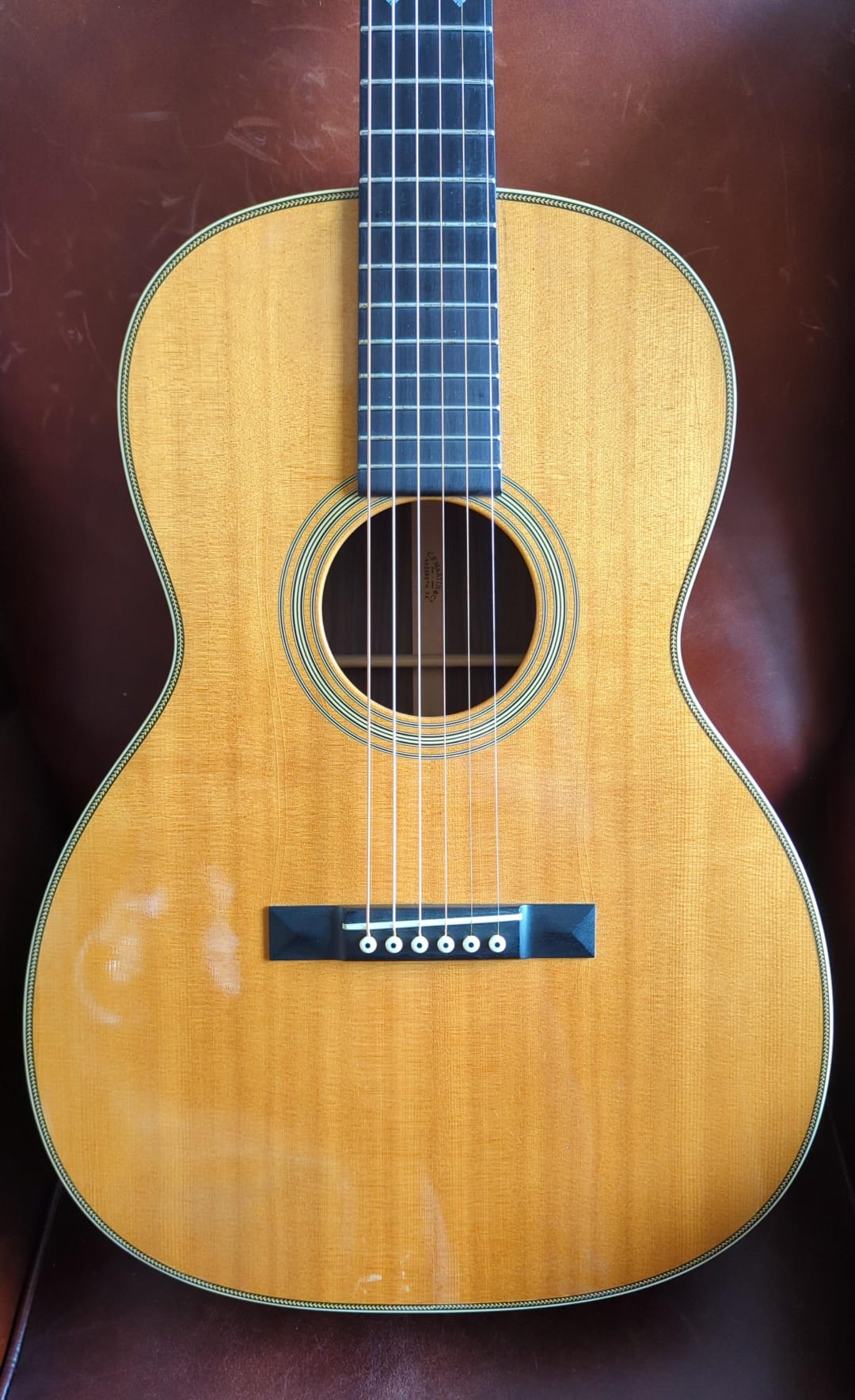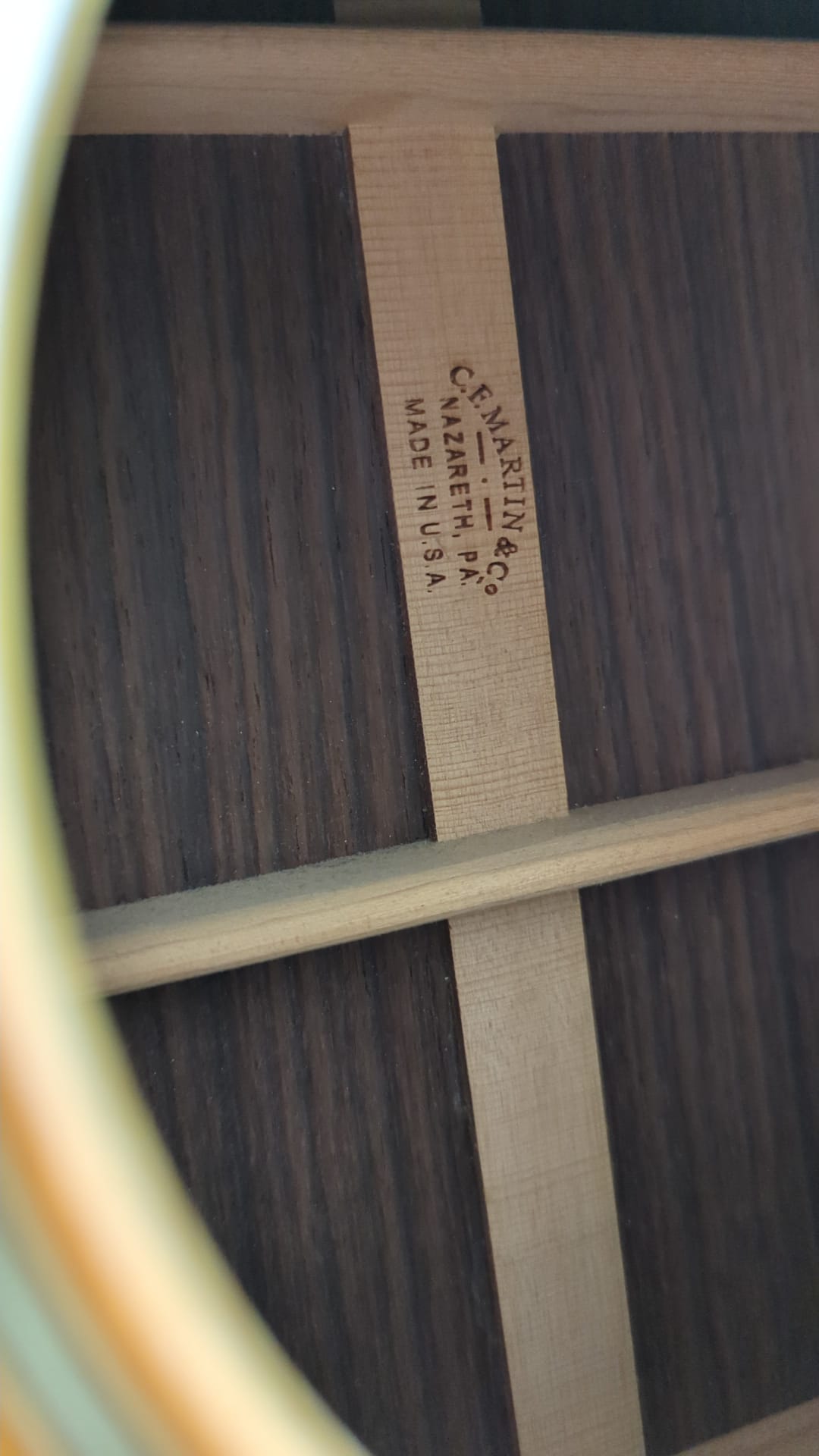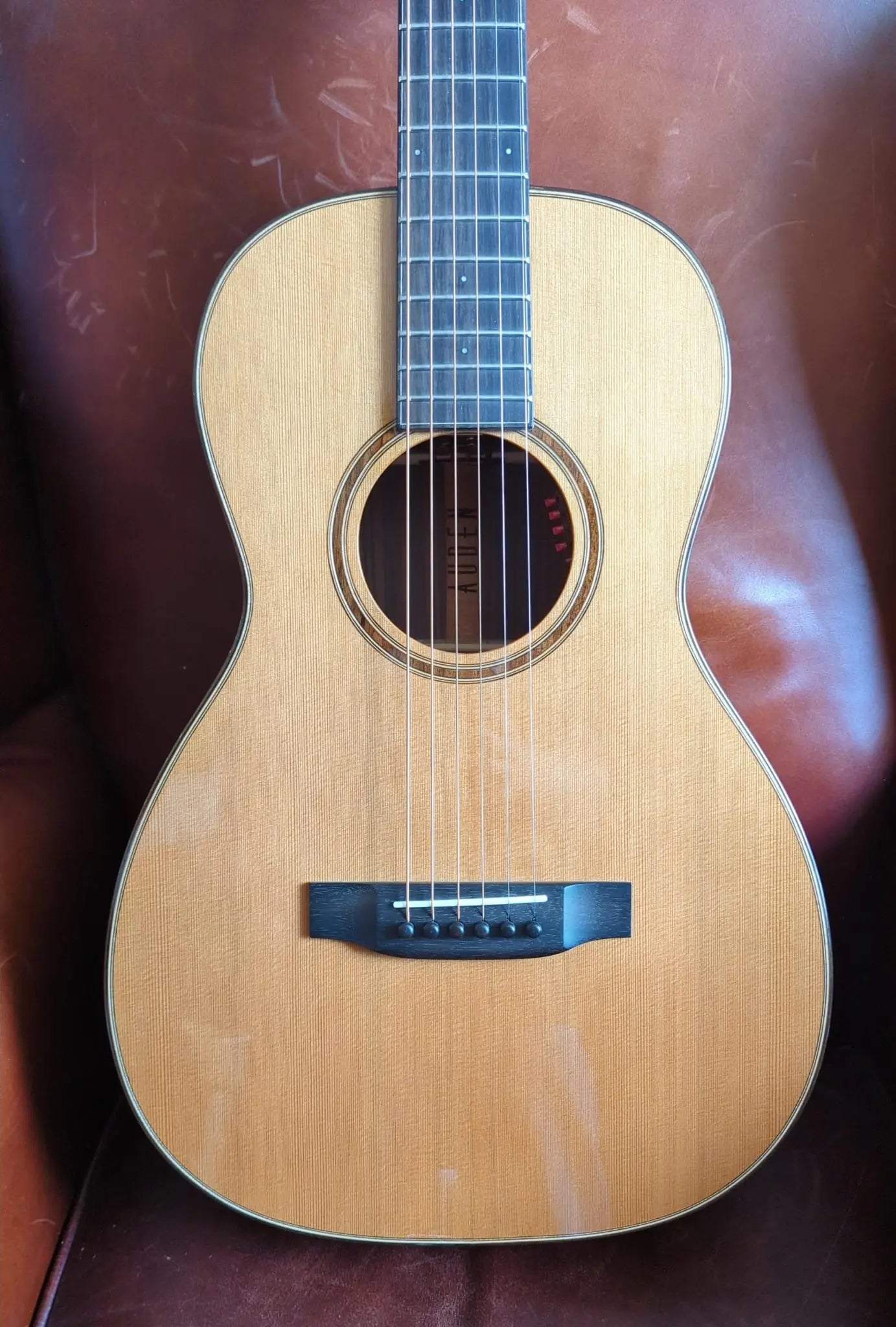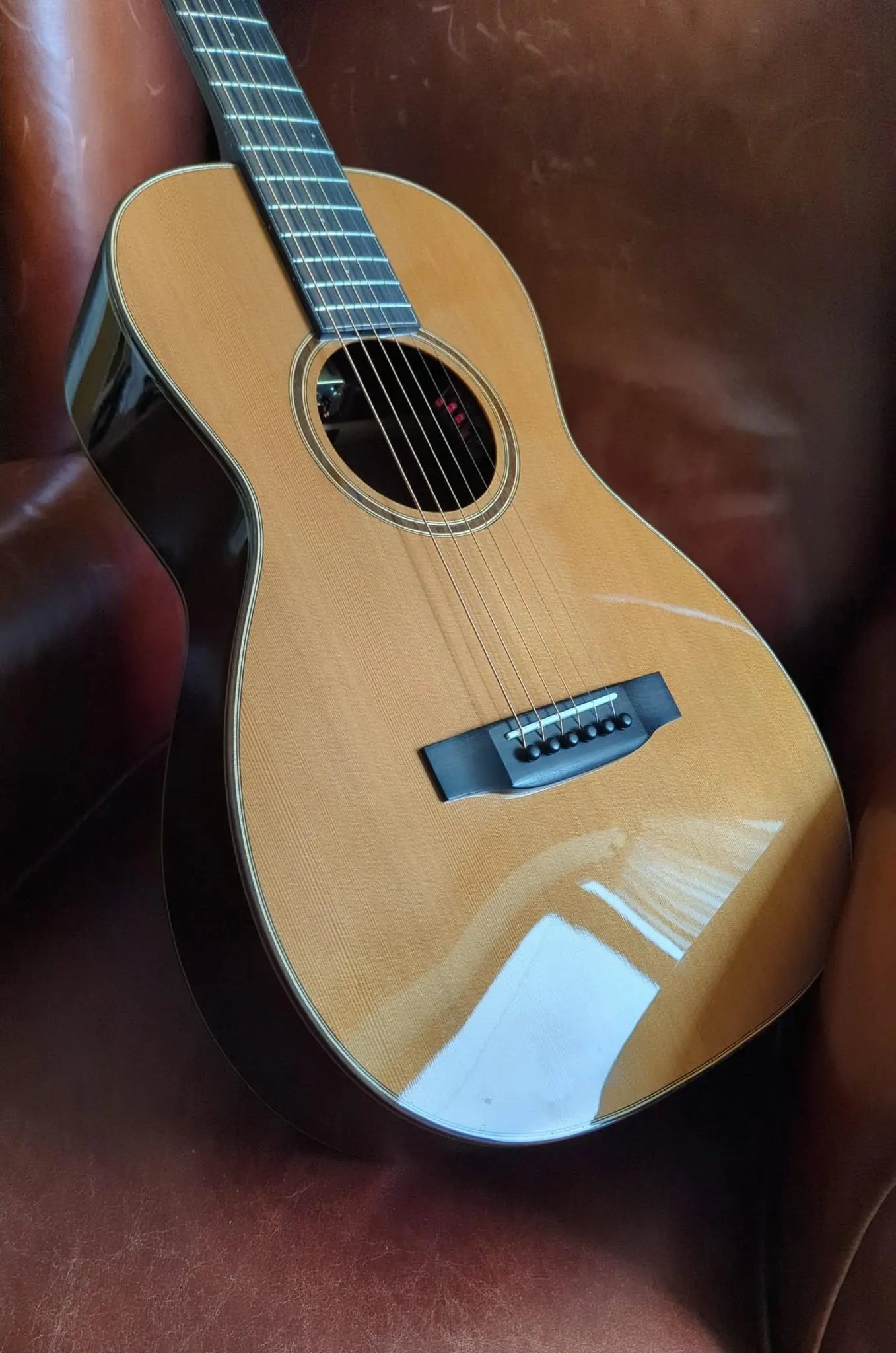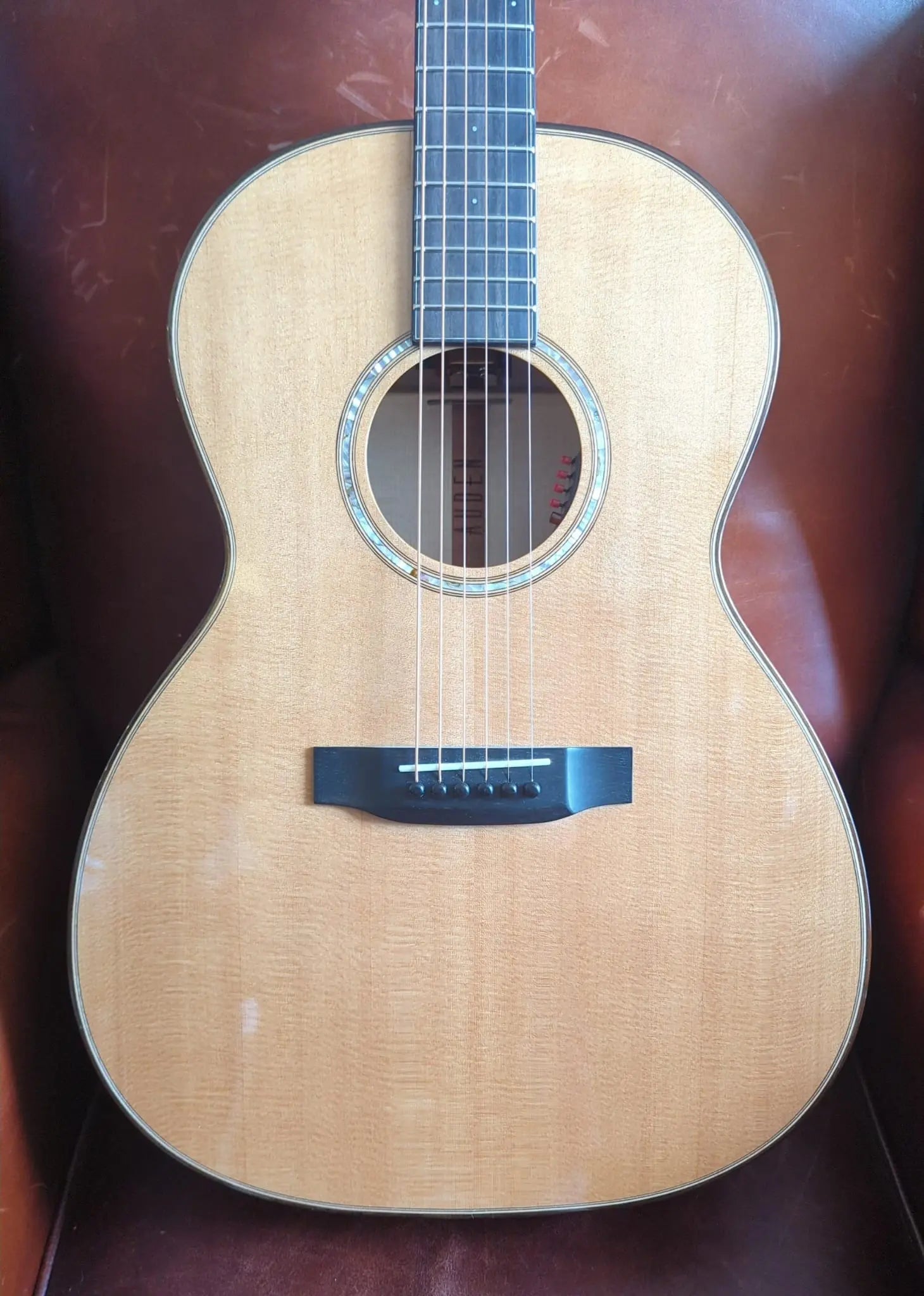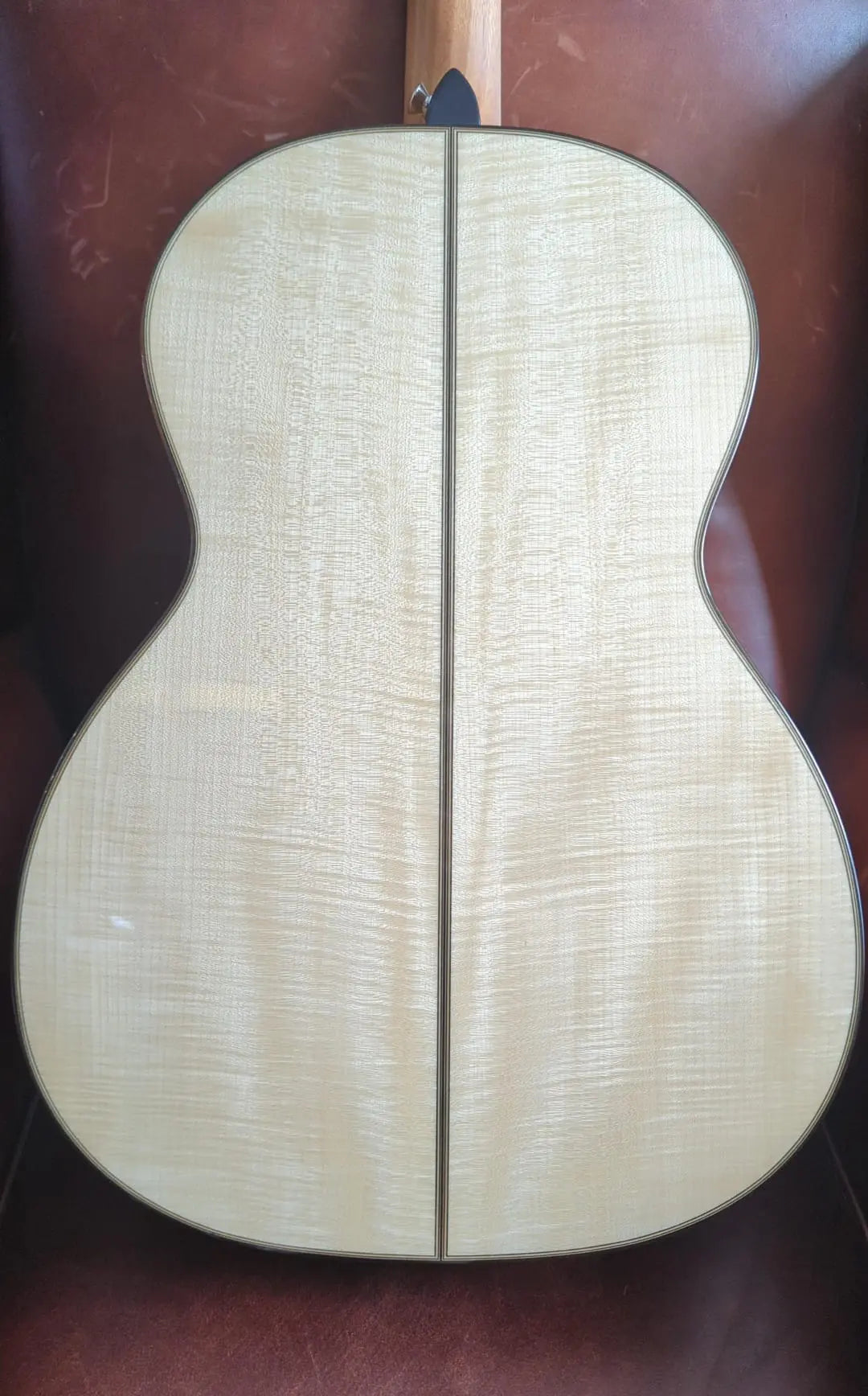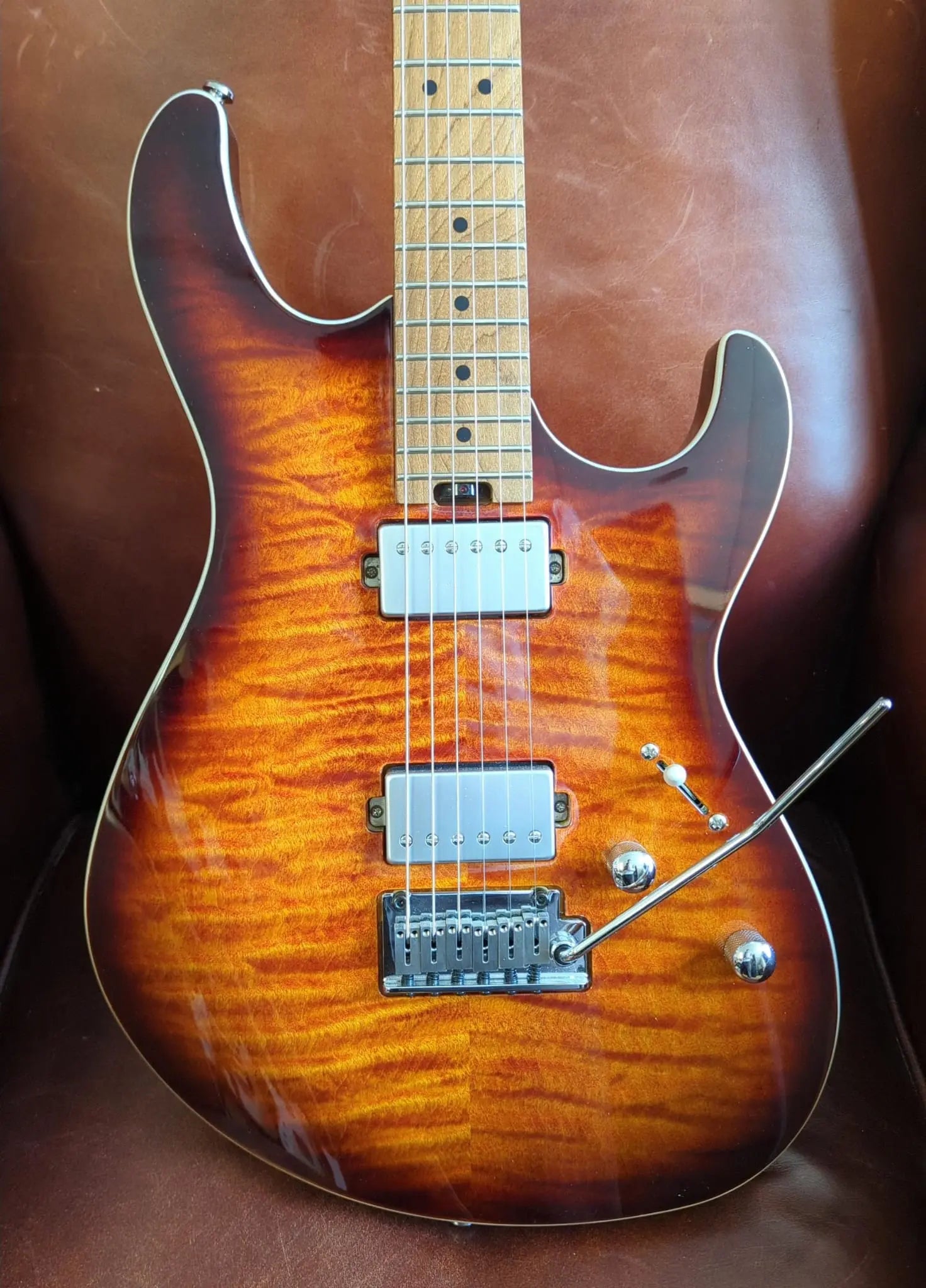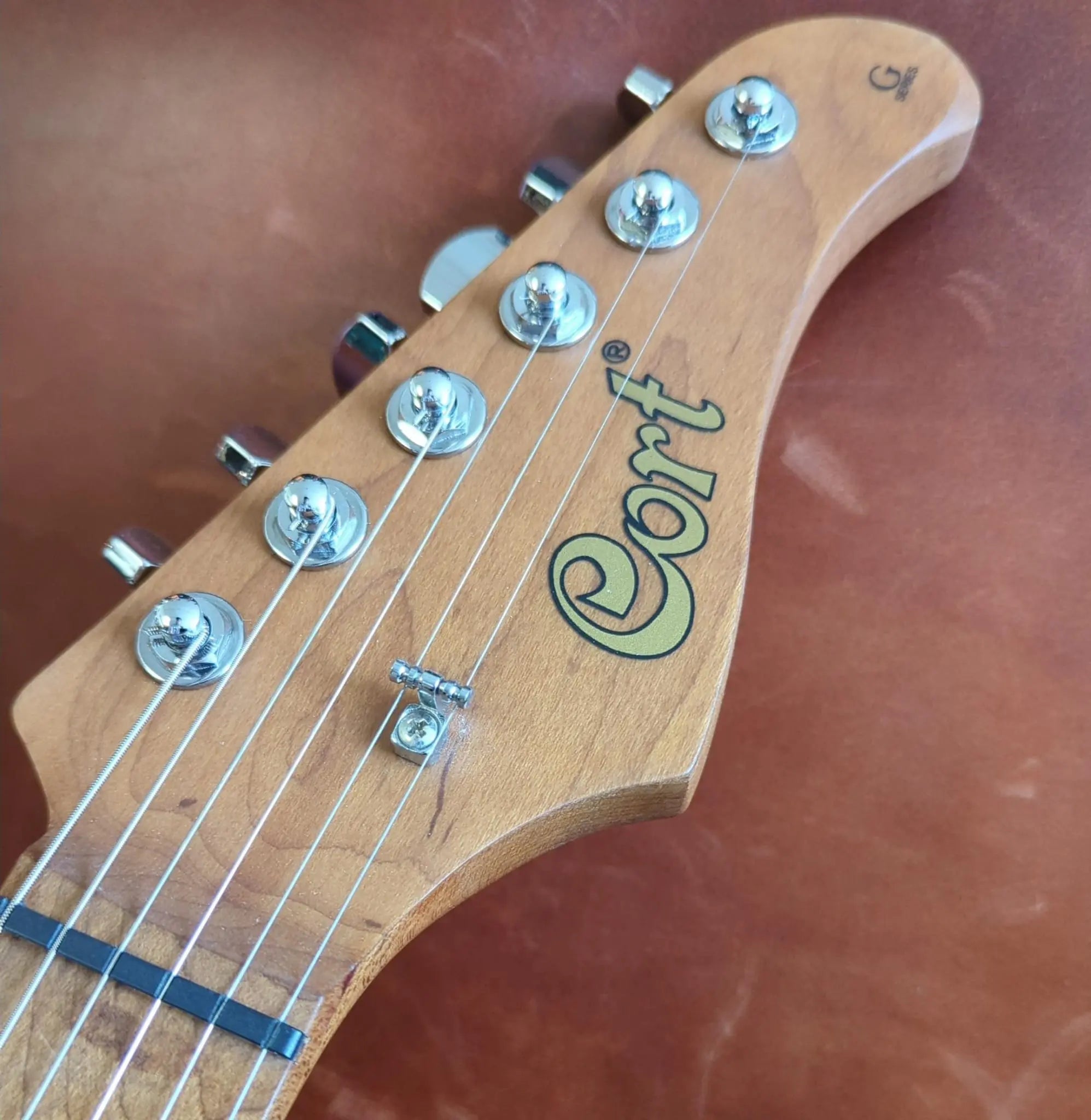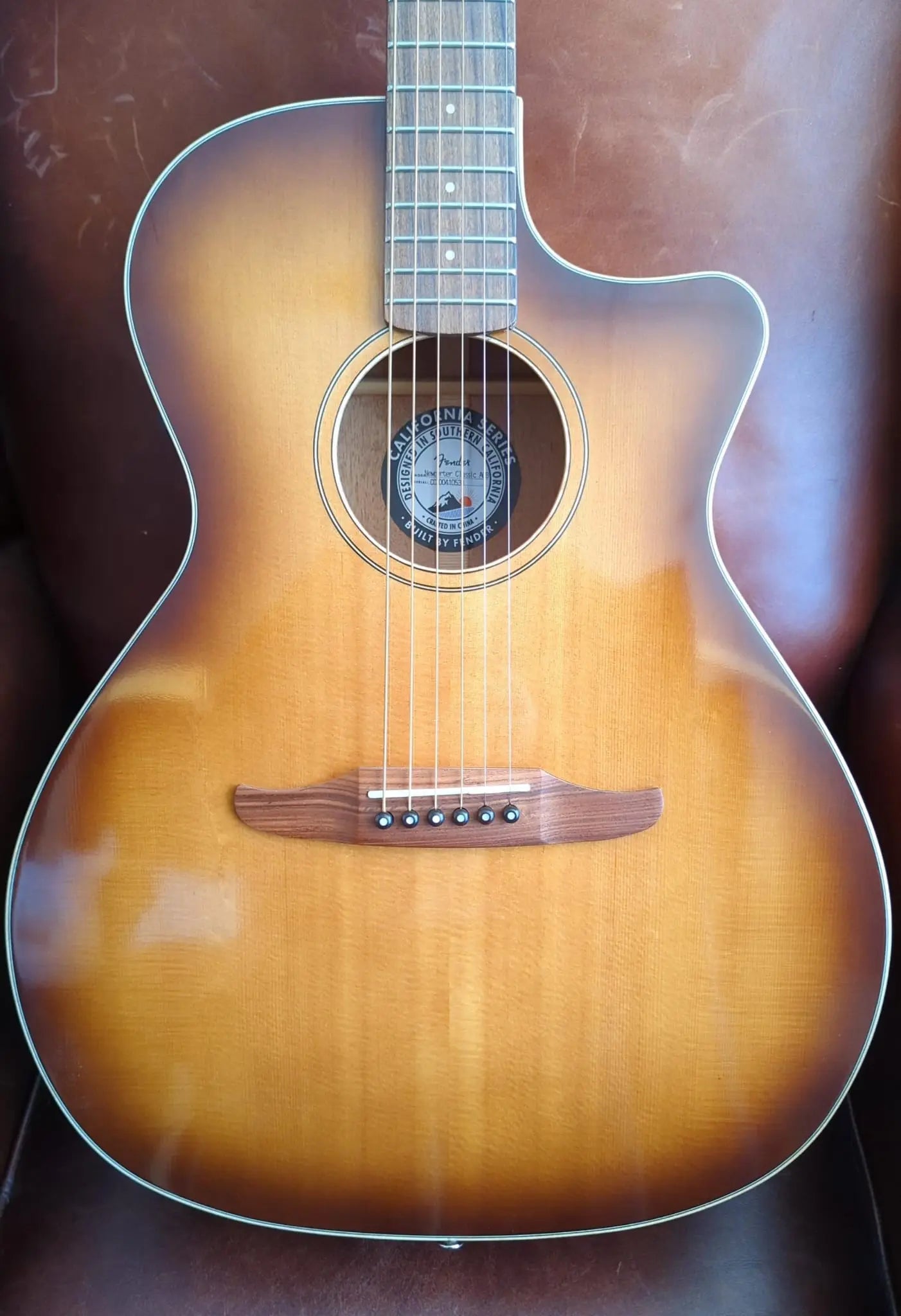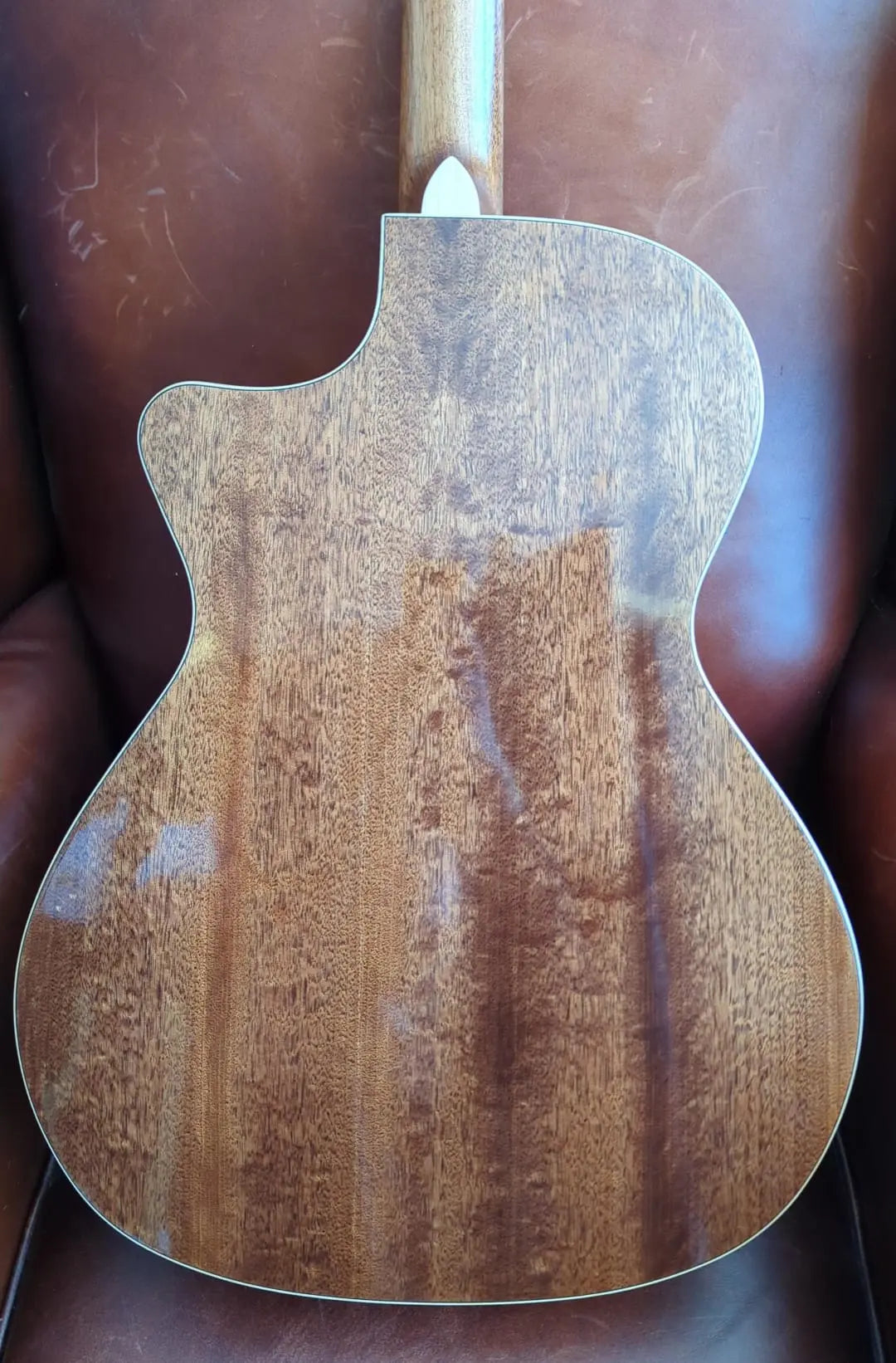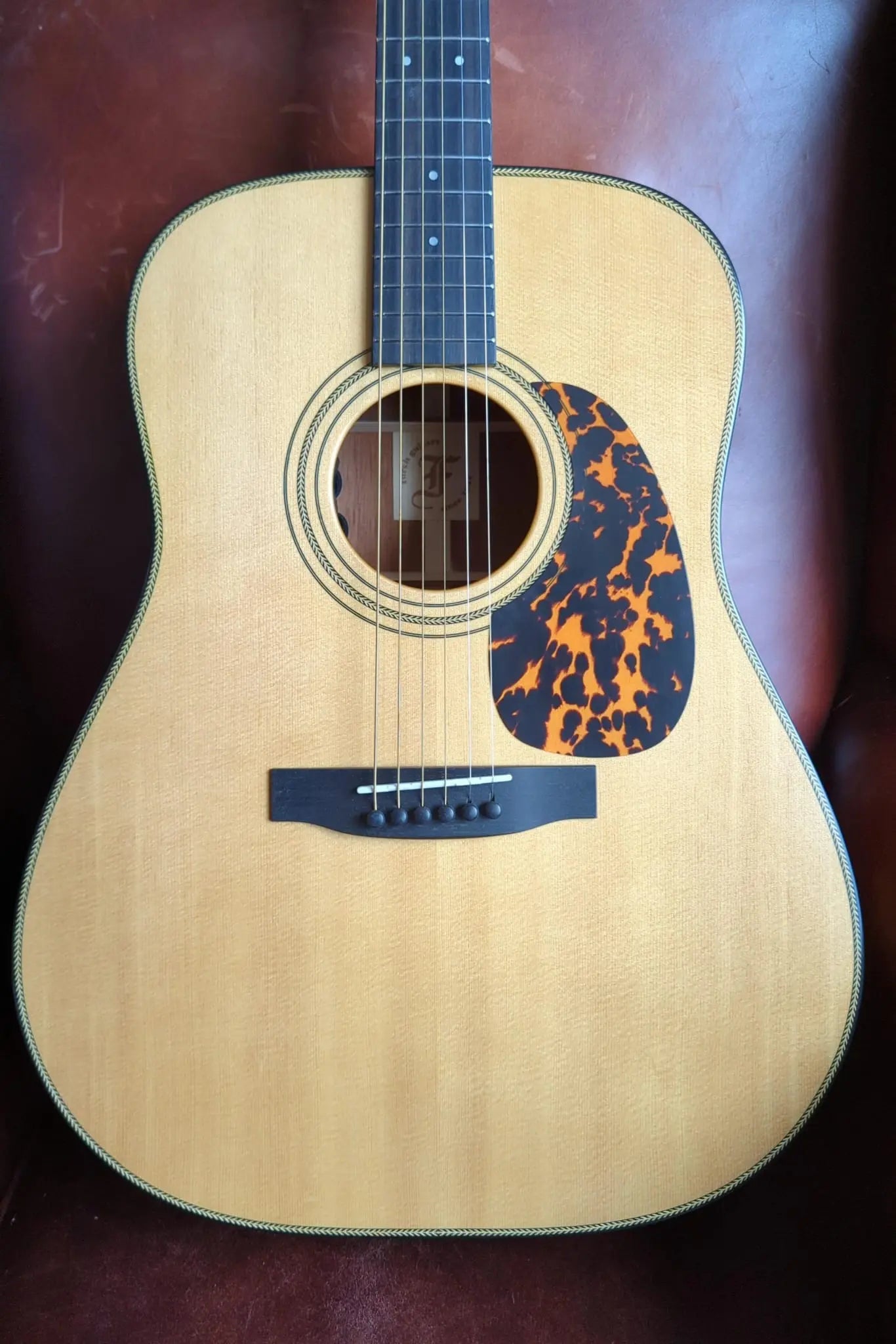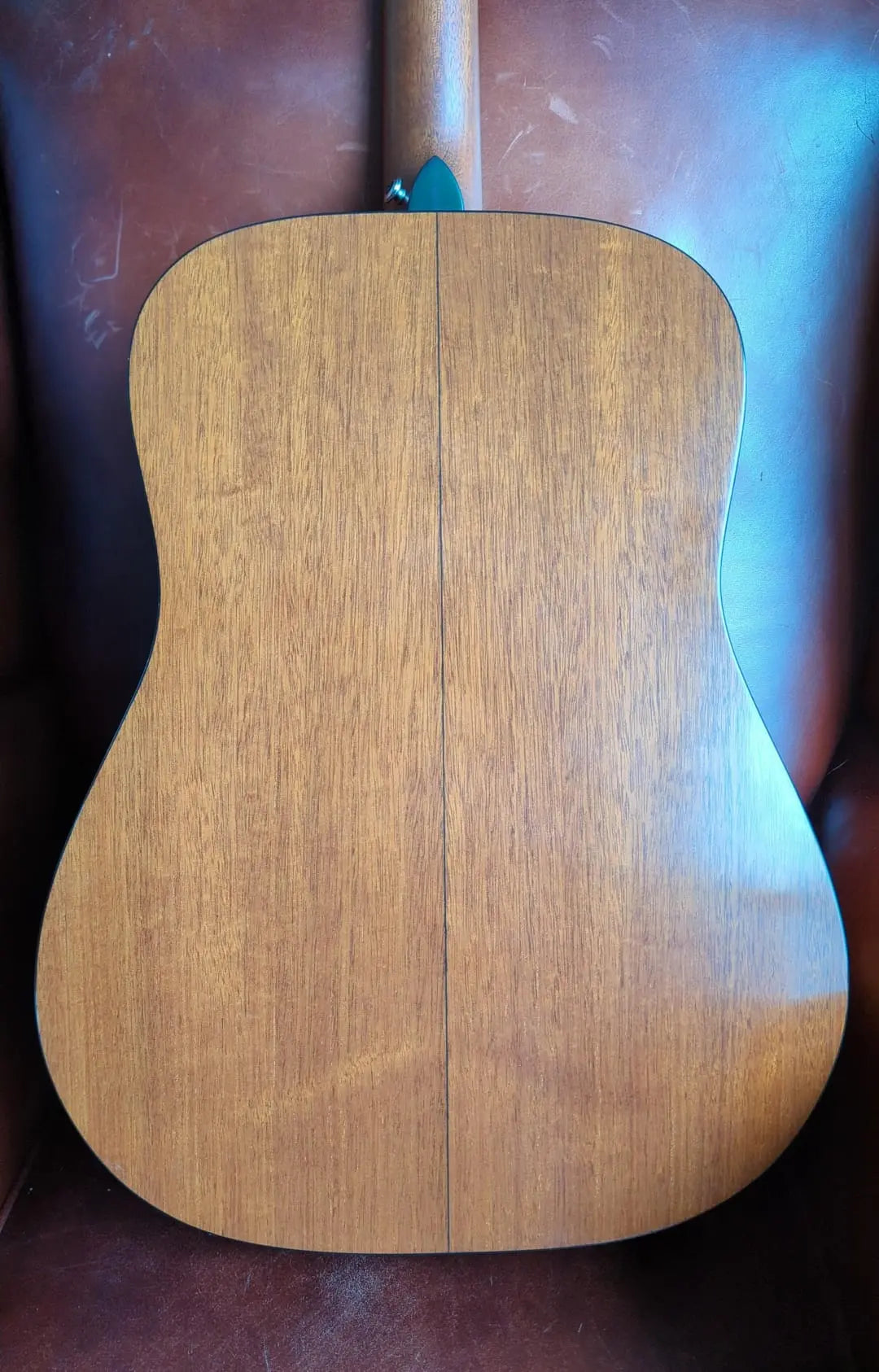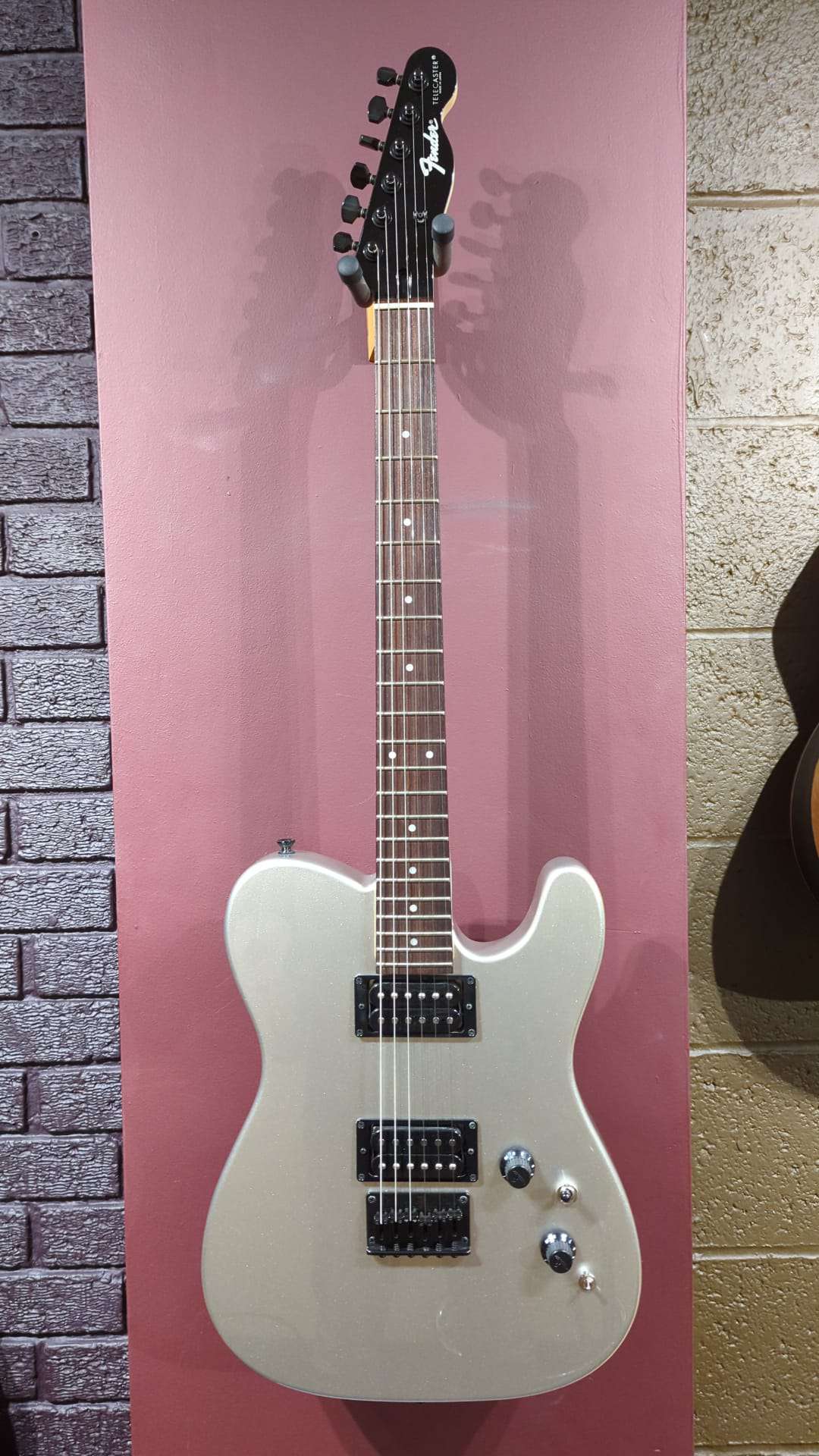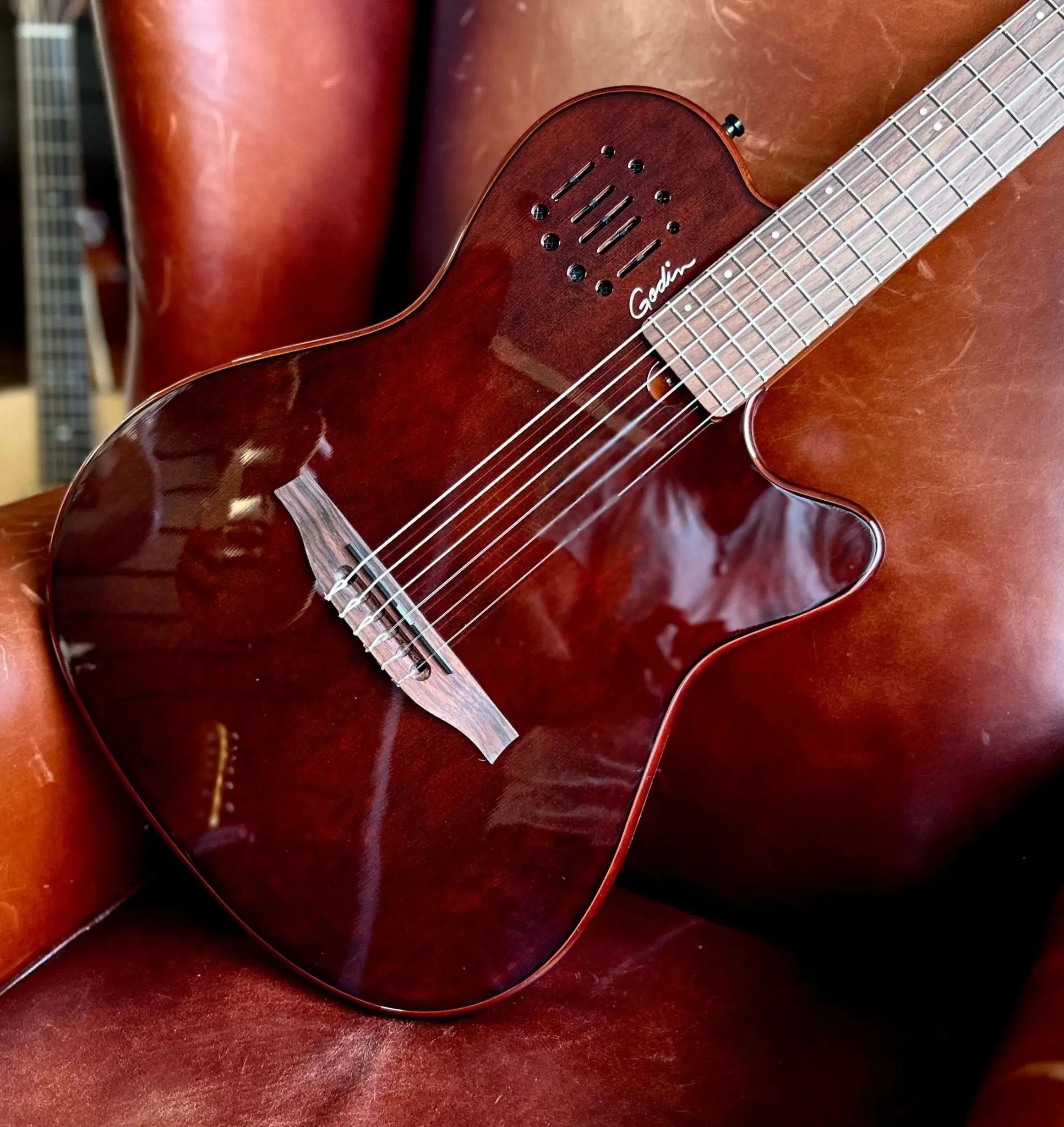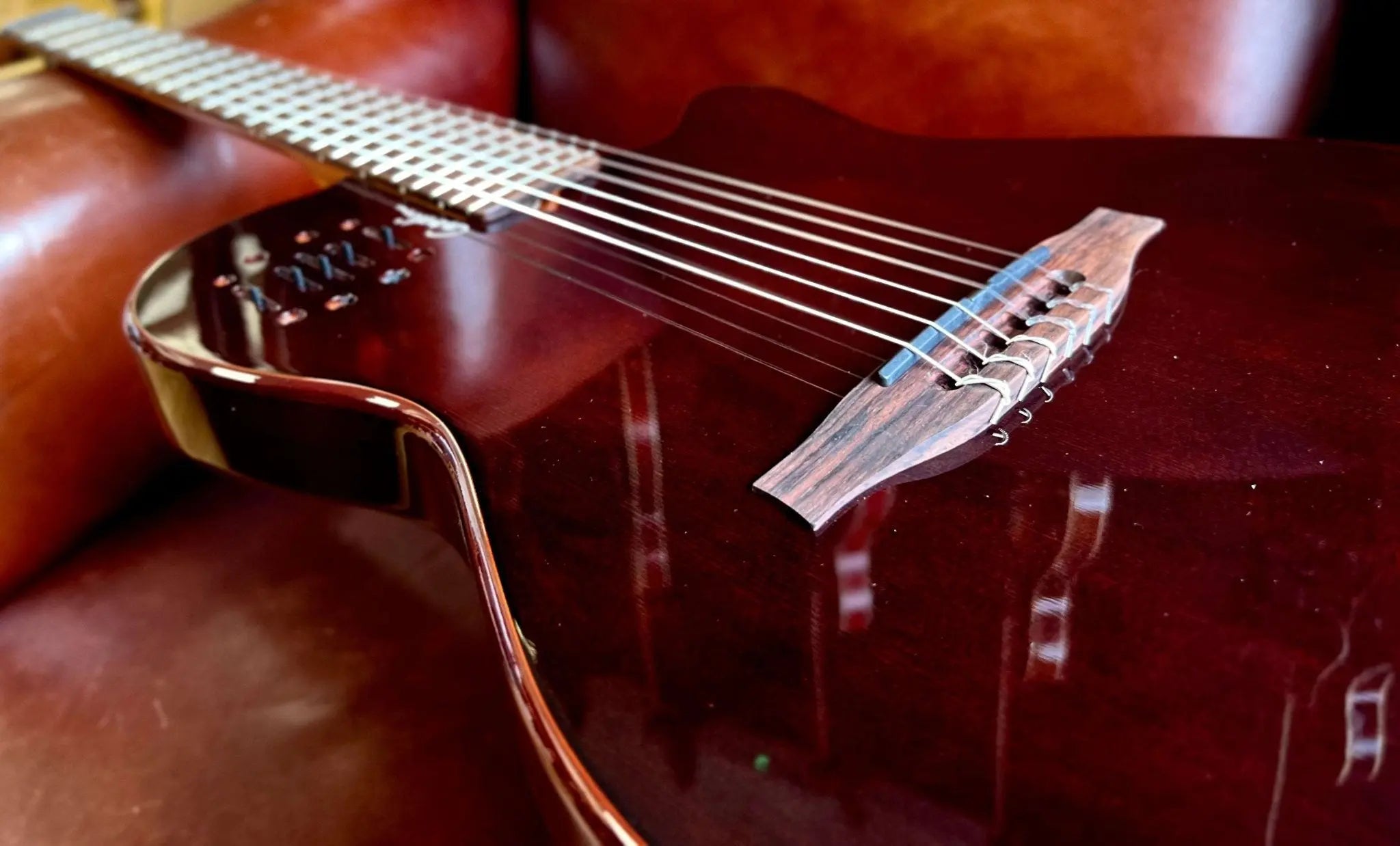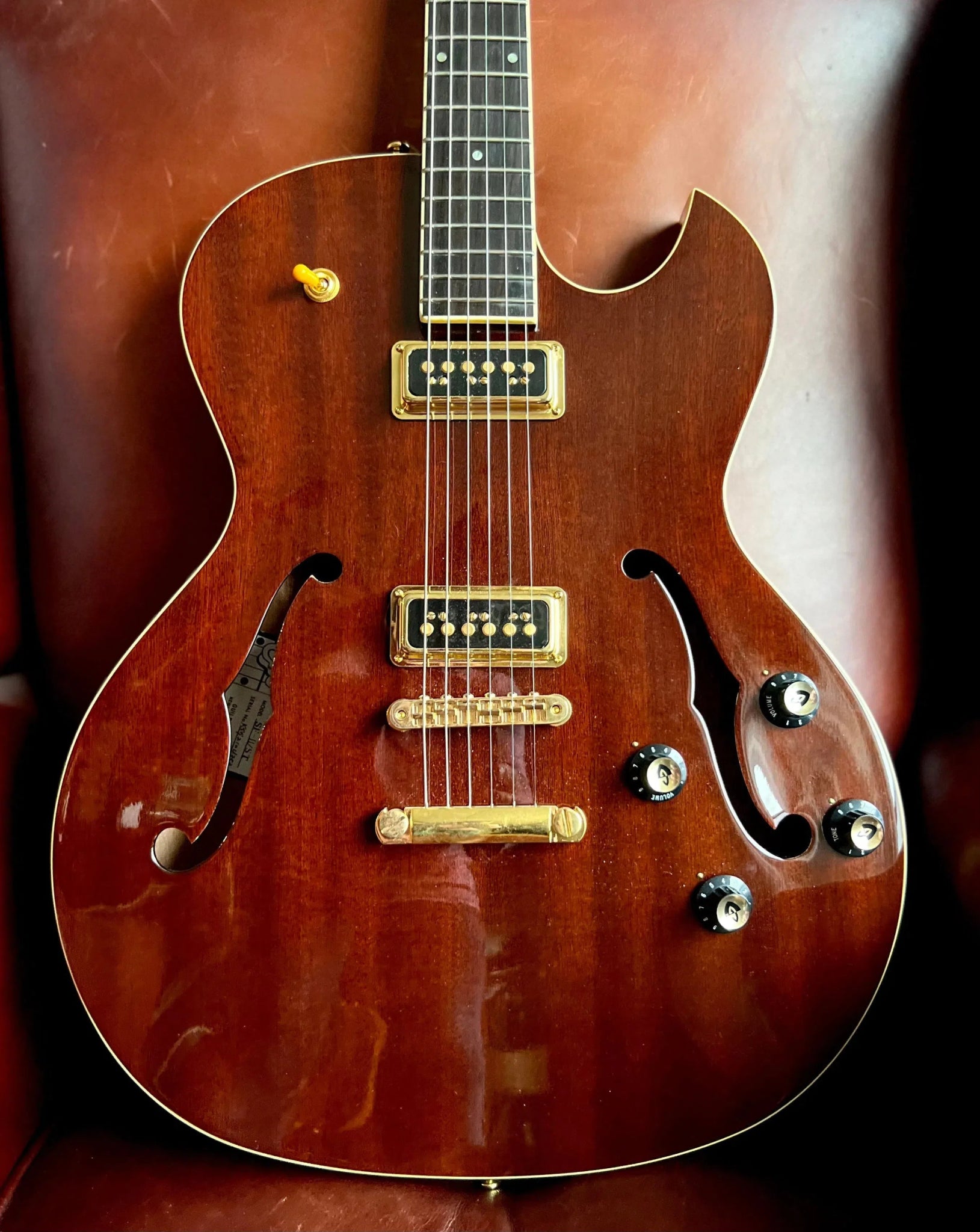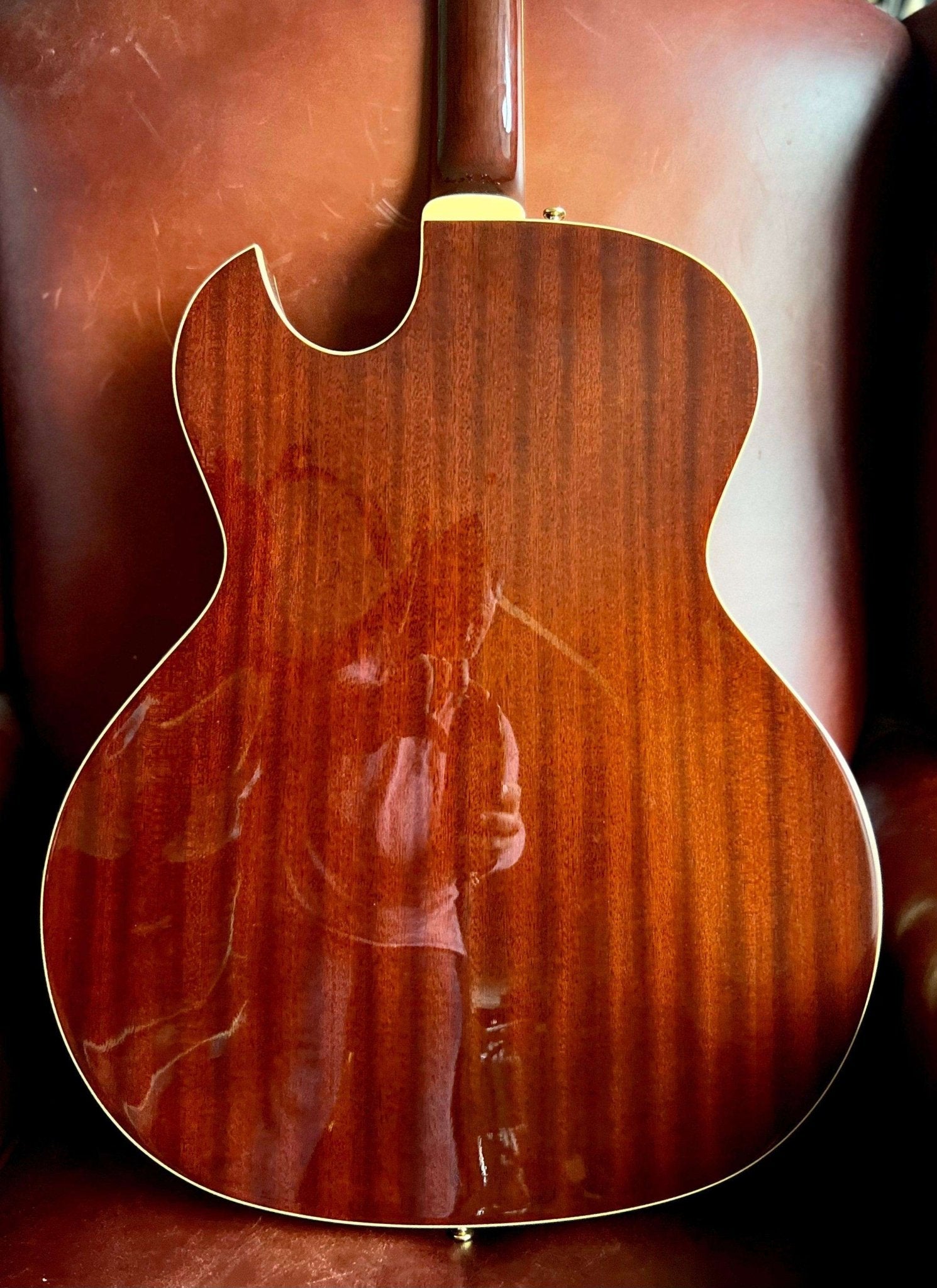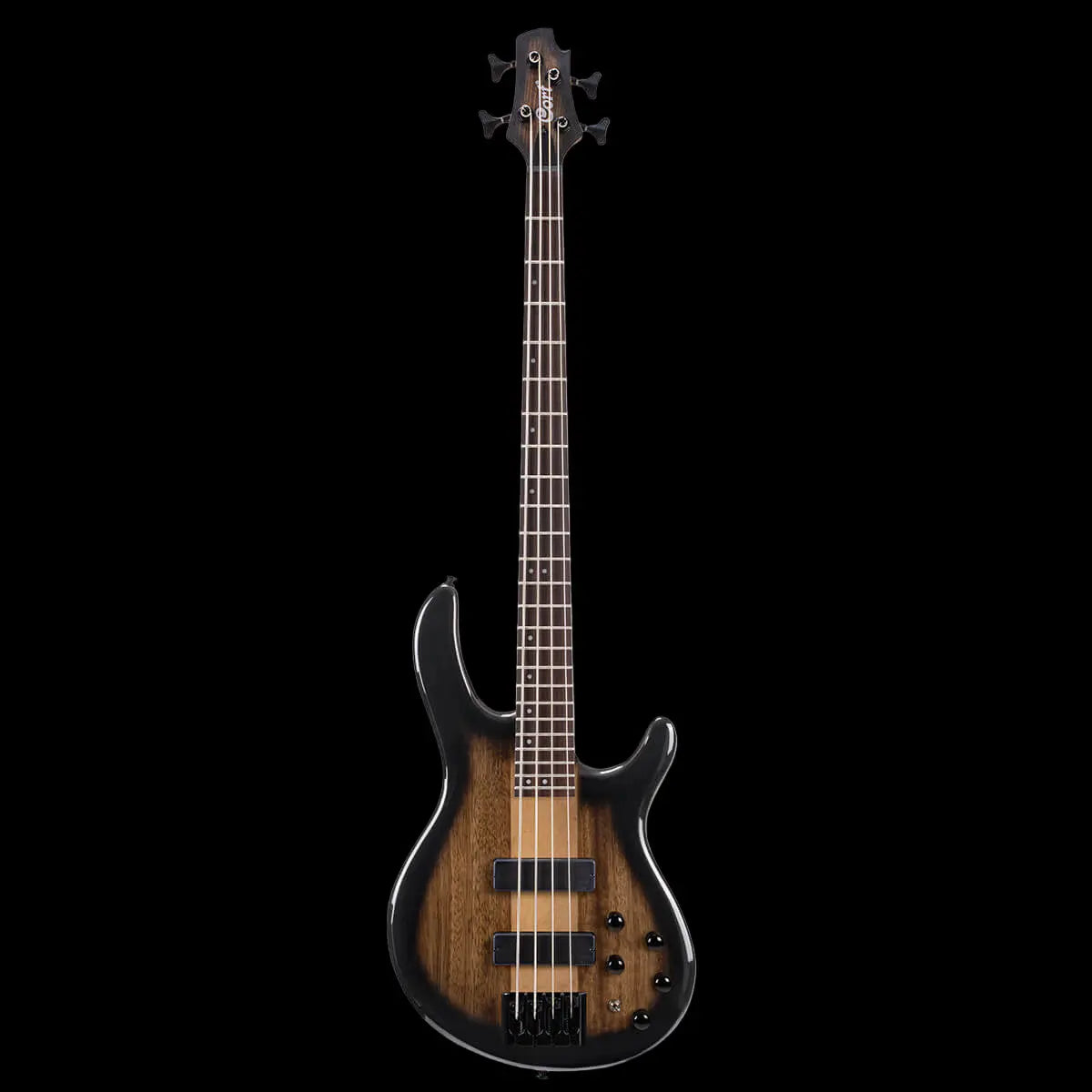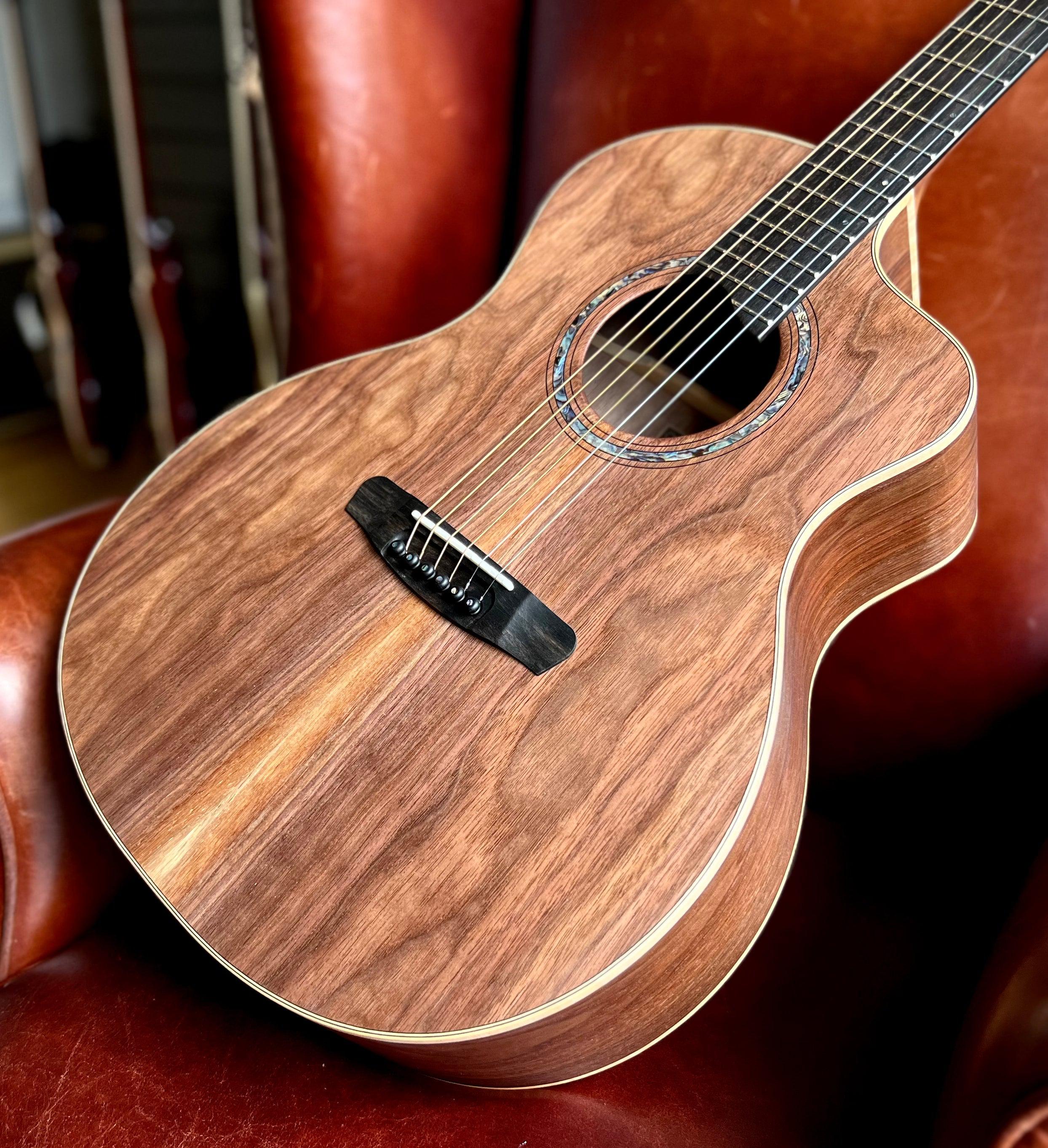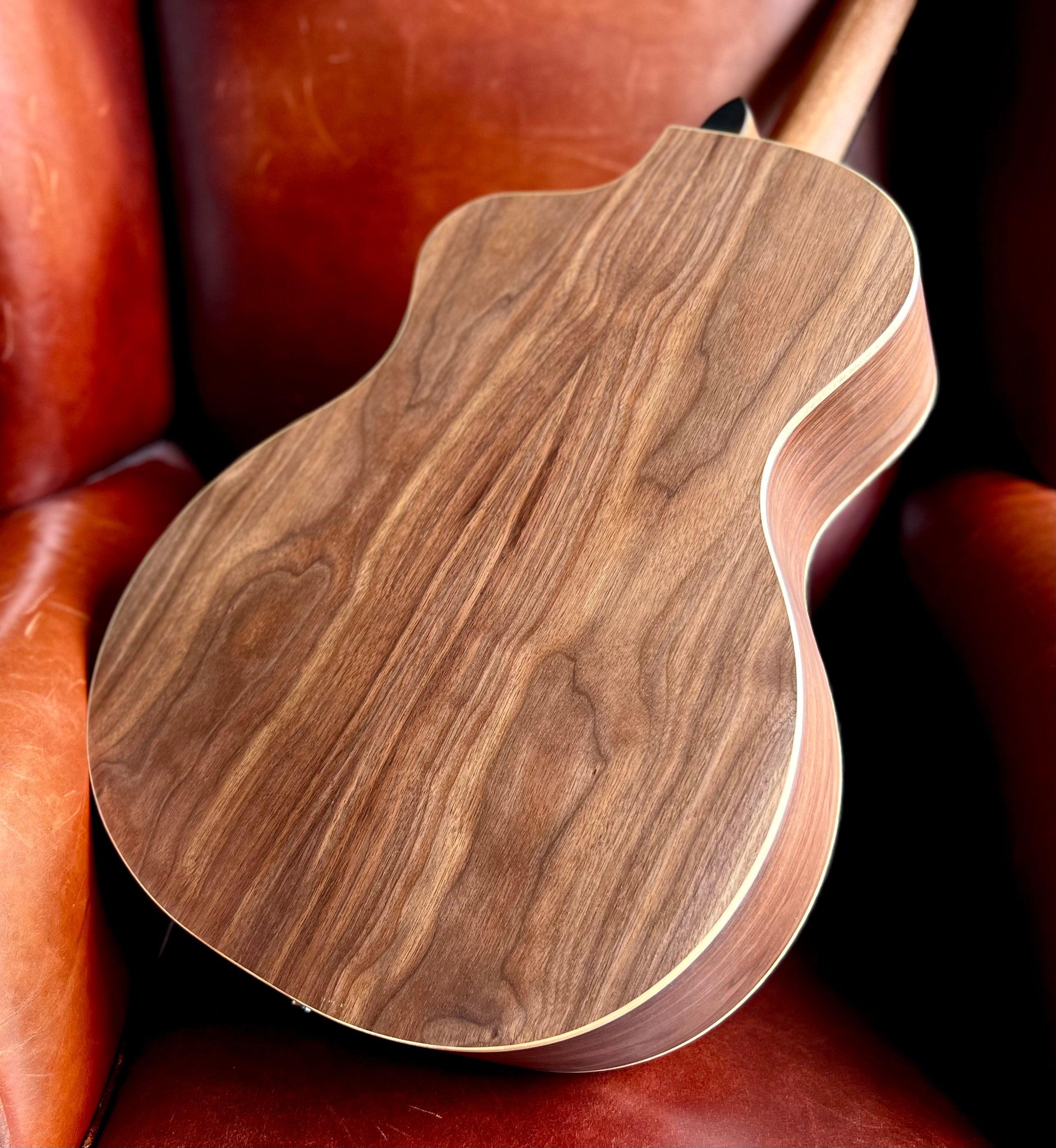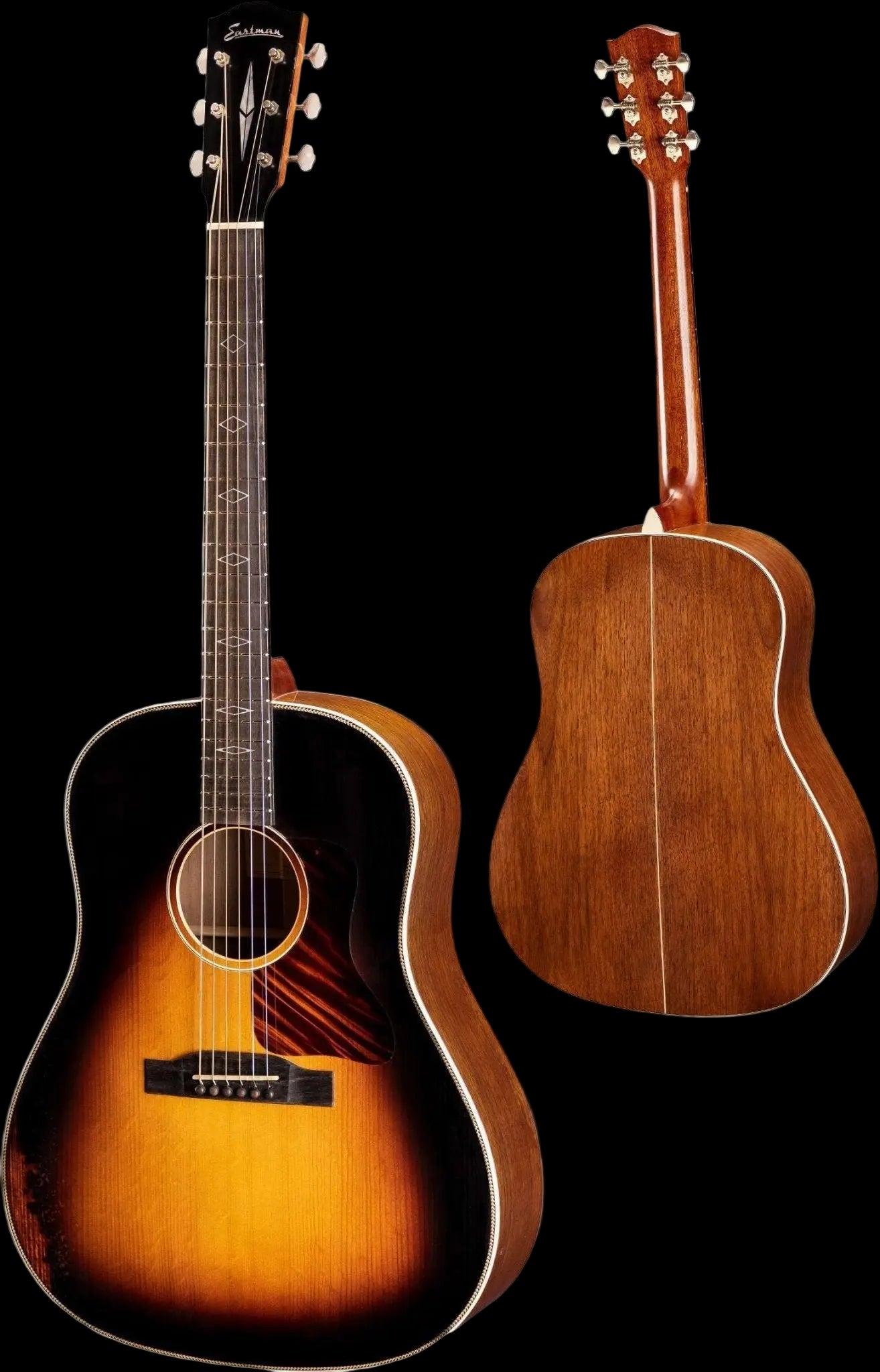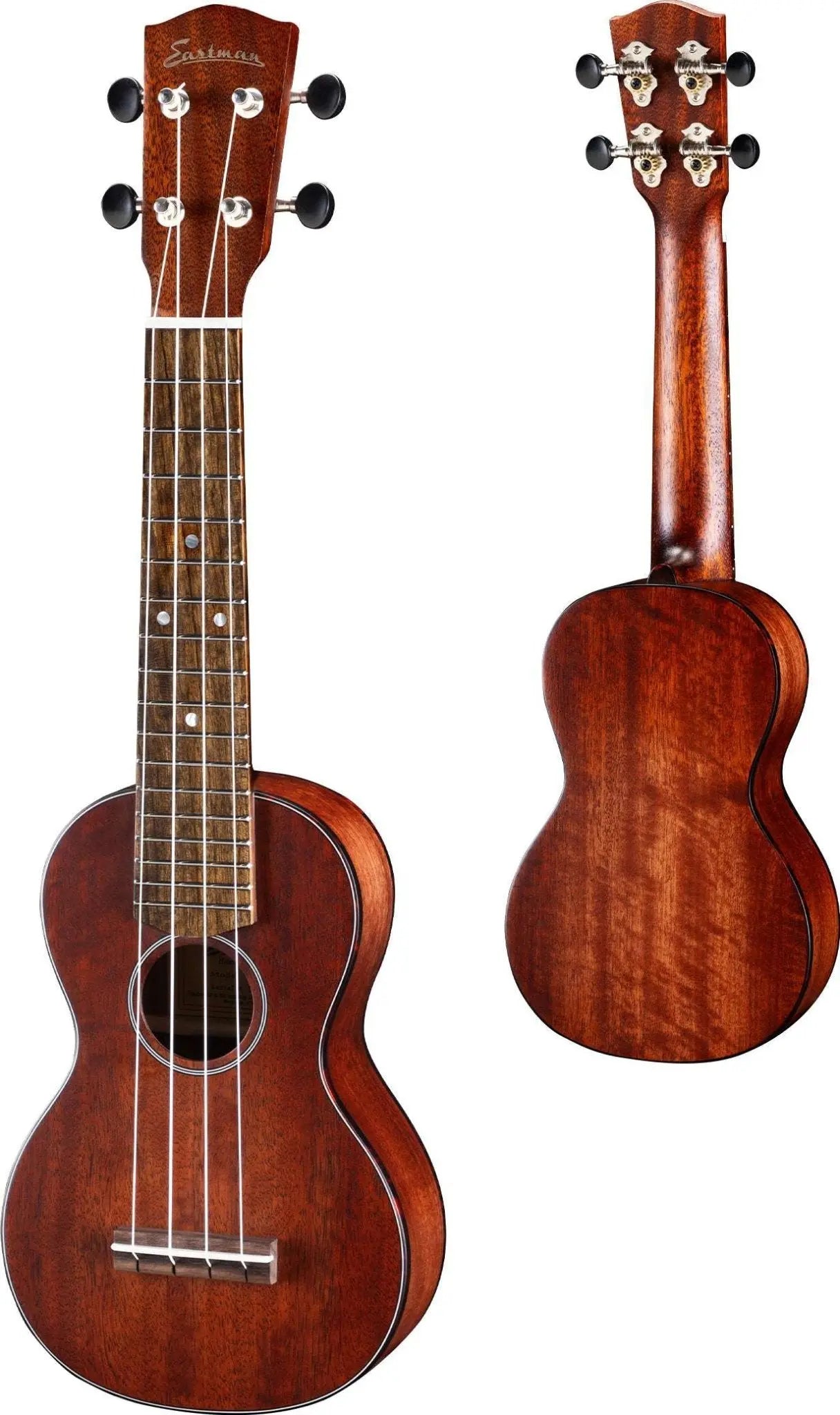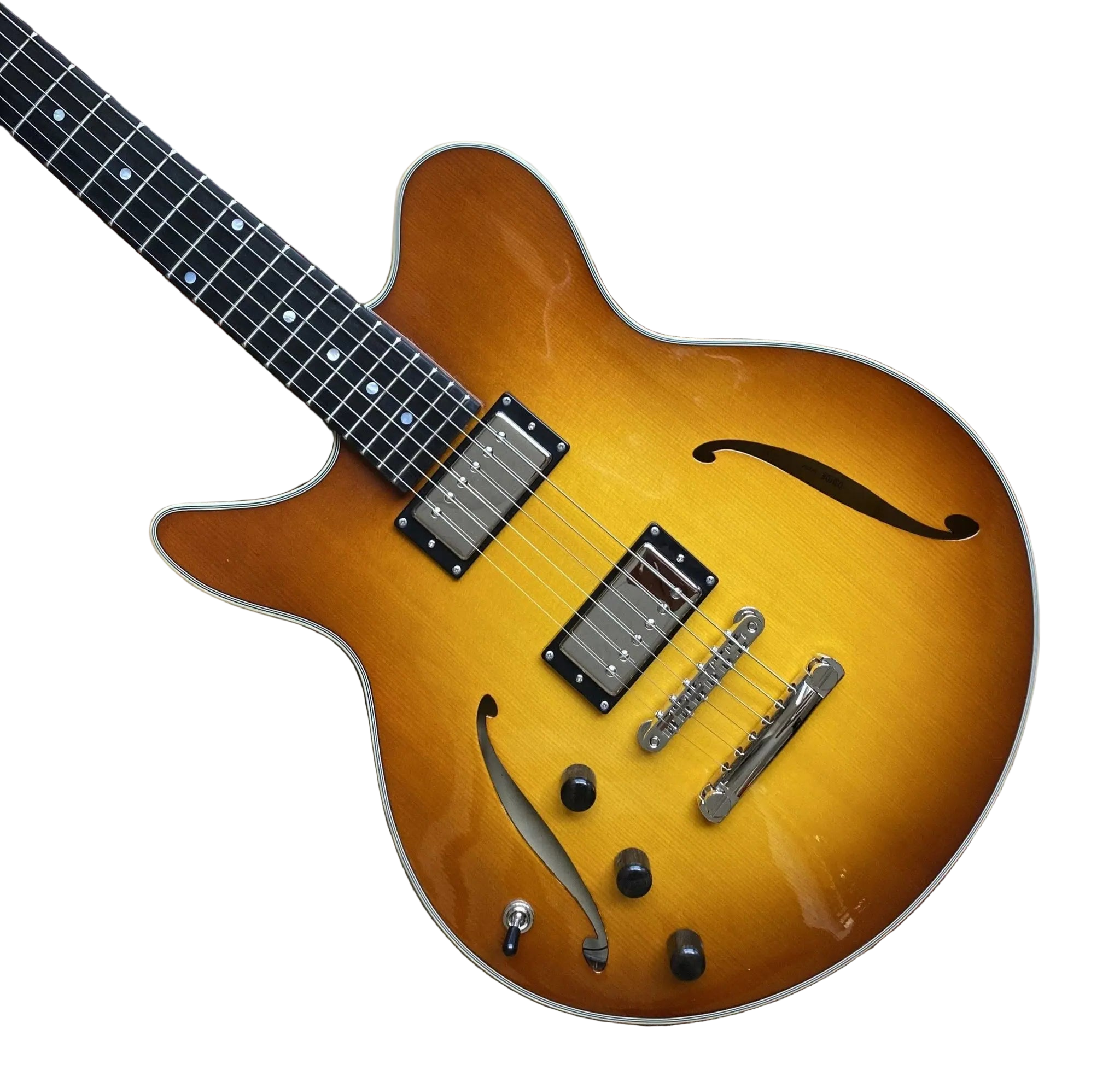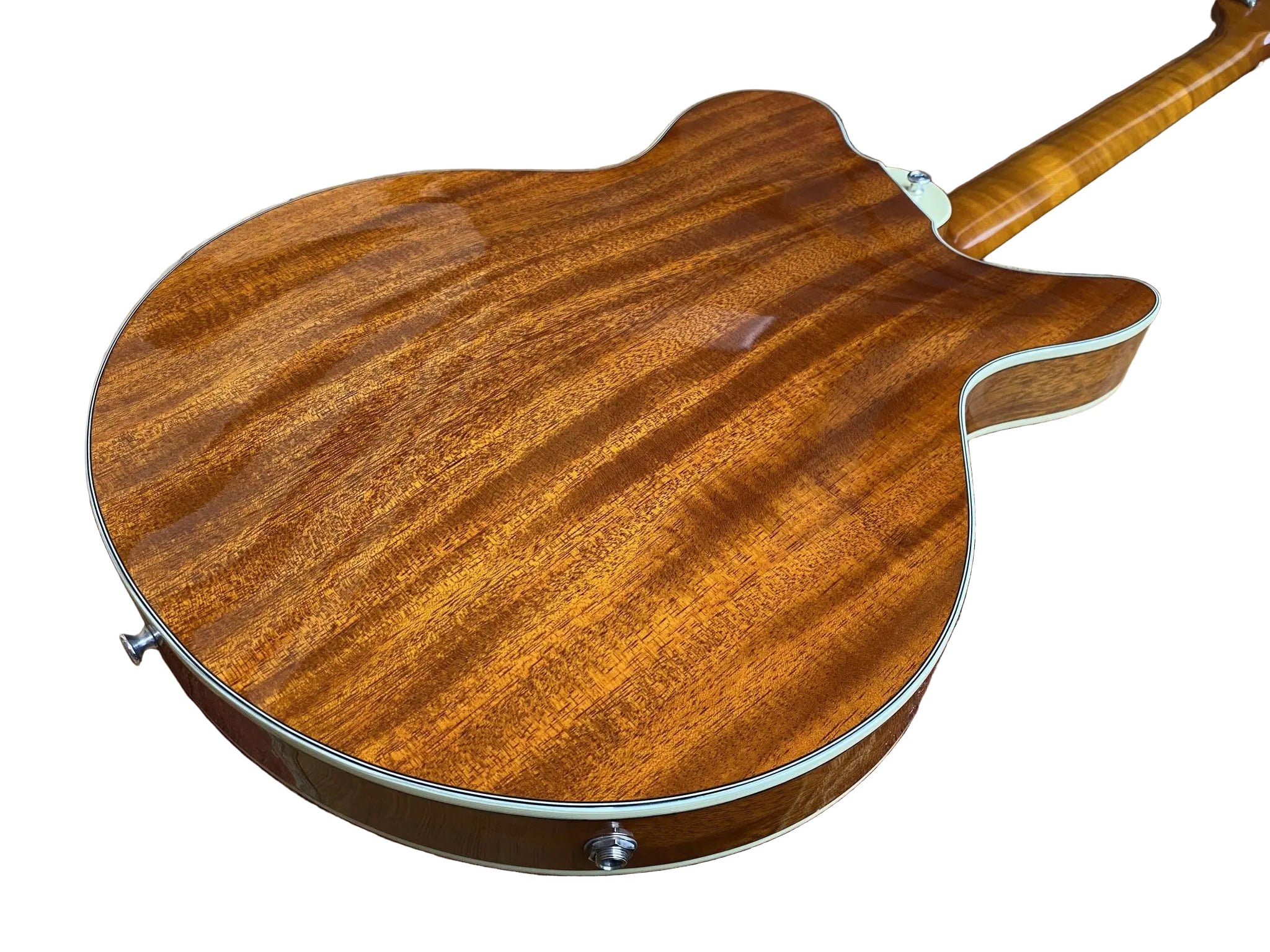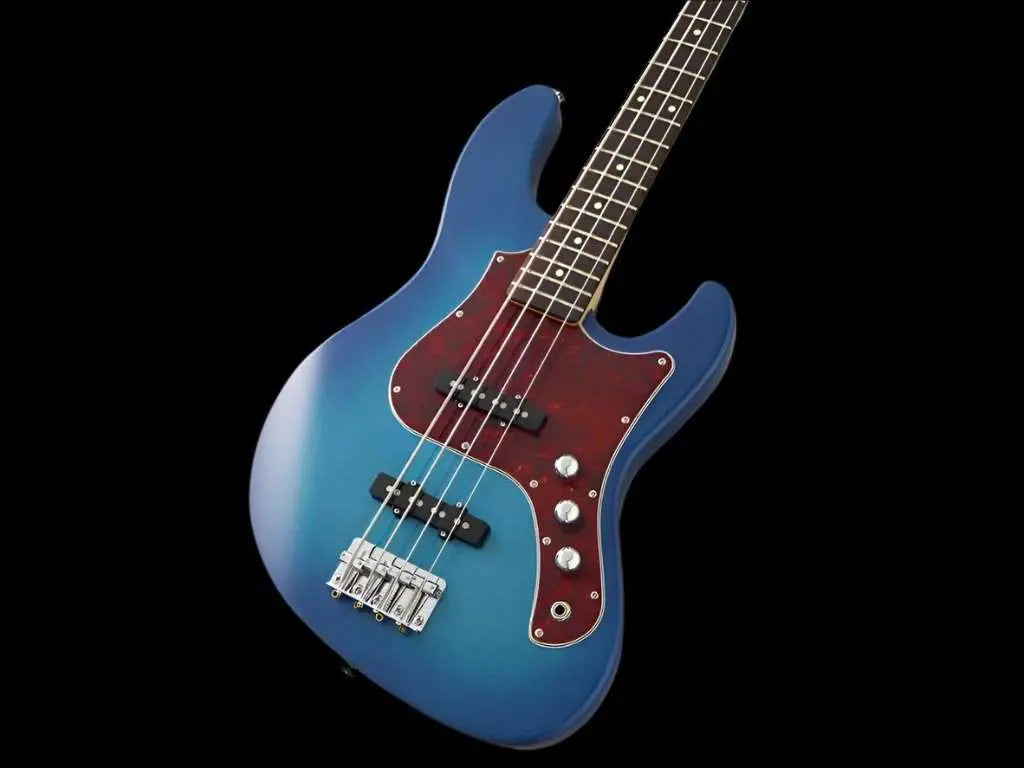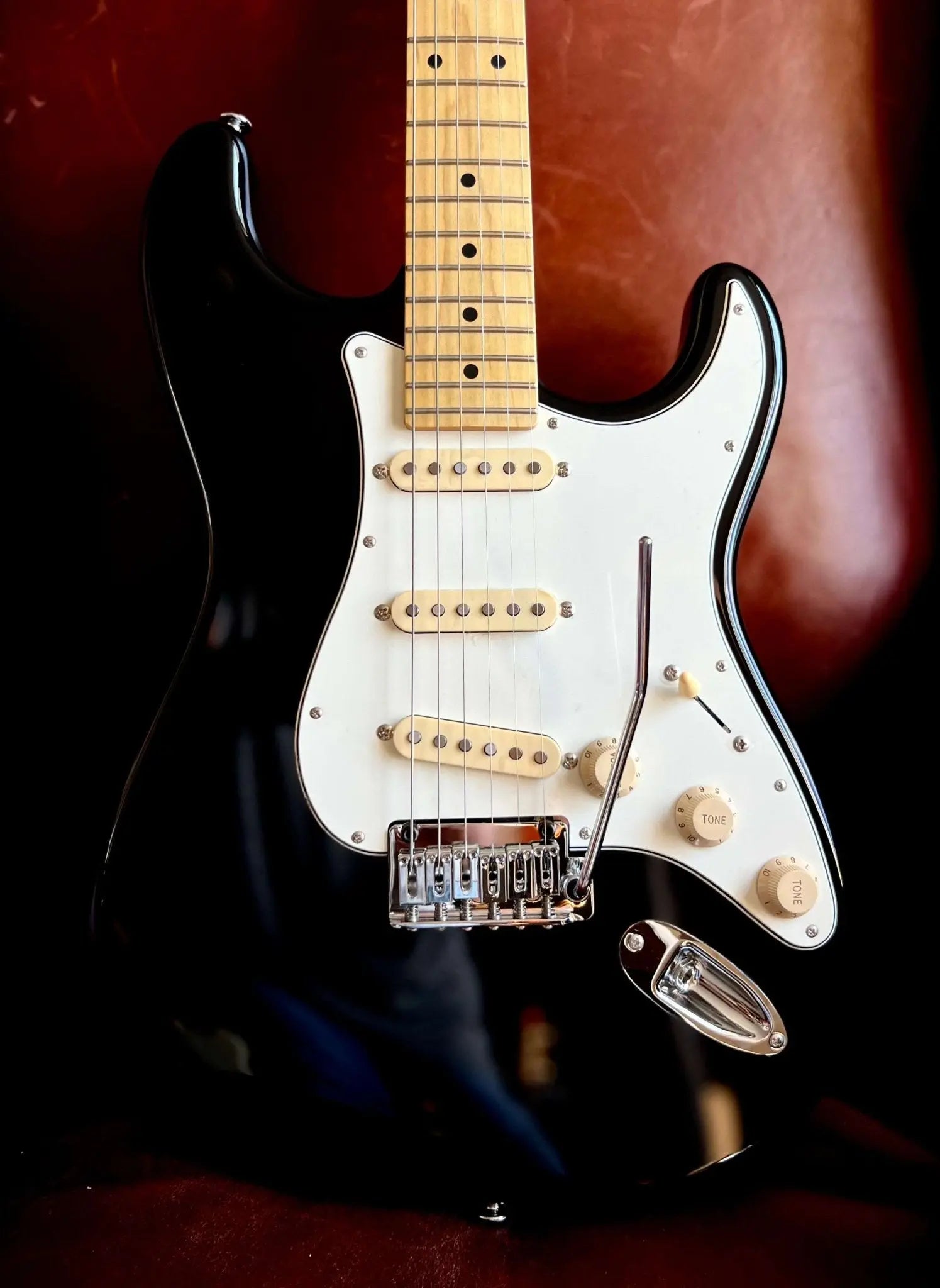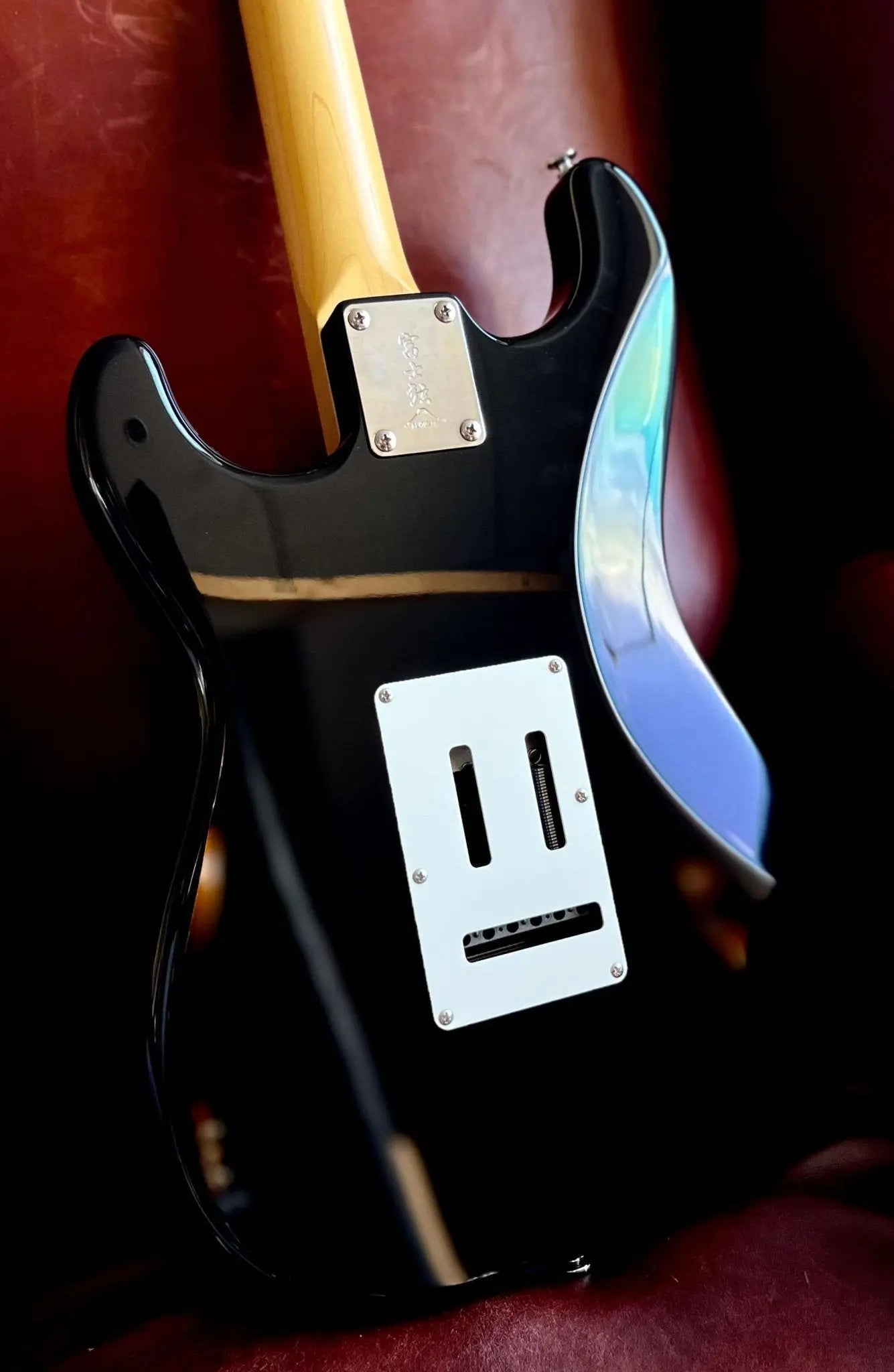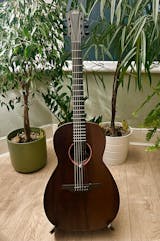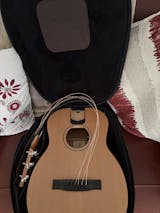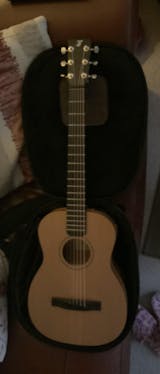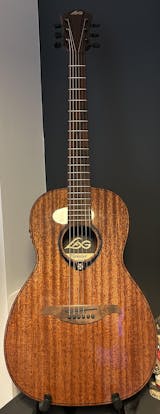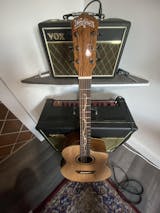Which Strings Are Best For Acoustic Guitar?
Choosing the Best Strings for Your Acoustic Guitar
When it comes to playing the acoustic guitar, the type of strings you use can significantly impact your playing experience and the sound you produce. With a plethora of options available, selecting the right strings can feel overwhelming. In this blog post, we'll dive into the different types of acoustic guitar strings, their materials, gauges, and how to choose the best ones for your playing style and preferences.
Materials: The Foundation of Tone
The material of your guitar strings is one of the most important factors influencing the sound and playability of your instrument. Here are the most common types:
1. Phosphor Bronze
Phosphor bronze strings are a favorite among many acoustic guitarists for their warm, bright, and balanced tone. They contain a mixture of copper and tin with a small amount of phosphor, which adds longevity and corrosion resistance. These strings are versatile and suitable for a wide range of musical styles.
2. 80/20 Bronze
80/20 bronze strings are made from 80% copper and 20% zinc. These strings produce a bright, crisp sound with pronounced bass. They are especially popular for recording because they tend to cut through a mix well. However, they may lose their brightness more quickly than phosphor bronze strings.
3. Silk and Steel
Silk and steel strings are wrapped with a combination of silk and steel, providing a softer, mellower tone. They are ideal for fingerstyle players and those who prefer a gentler touch. These strings are also easier on the fingers, making them a great choice for beginners.
4. Nylon
Nylon strings are traditionally used on classical guitars but can also be found on some acoustic guitars designed for a softer, more mellow sound. They are perfect for classical, flamenco, and folk music.
Gauges: Finding the Perfect Fit
The gauge of a string refers to its thickness. The choice of gauge affects both the sound and the feel of the strings. Here are the common gauge categories:
1. Extra Light (.010 - .047)
Extra light strings are the thinnest and easiest to play, making them perfect for beginners and those who prefer a lighter touch. They produce a bright sound but may lack some depth and volume.
2. Light (.012 - .054)
Light gauge strings are a popular choice for many acoustic guitarists because they offer a good balance of playability and tone. They are versatile and suitable for various styles, from strumming to fingerpicking.
3. Medium (.013 - .056)
Medium gauge strings are thicker and require more finger strength, but they provide a fuller, louder sound. They are great for strumming and genres that require a more robust tone, such as rock or blues.
4. Heavy (.014 - .059 and above)
Heavy gauge strings offer the richest tone and the highest volume. They are typically used for specific genres like bluegrass or by players who prefer a more forceful playing style. However, they can be tough on the fingers and may not be suitable for all guitars due to increased tension on the neck.
Coated vs. Uncoated Strings
Coated strings have a thin layer of polymer coating that extends their lifespan by protecting them from dirt, sweat, and oils. While they are more expensive than uncoated strings, they are a great investment for players who want strings that last longer and require less frequent changing. Coated strings also tend to have a smoother feel, which can be beneficial for fingerstyle playing.
Uncoated strings, on the other hand, provide a more traditional feel and tone. They are often preferred by purists who seek the raw, natural sound of their guitar.
Conclusion: Personal Preference is Key
Ultimately, the best strings for your acoustic guitar depend on your personal preferences and playing style. Here are a few tips to help you decide:
- Try Different Materials: Experiment with phosphor bronze, 80/20 bronze, silk and steel, and nylon to find the tone that suits you best.
- Test Various Gauges: Start with light gauge strings if you're unsure and then adjust based on your comfort and the sound you desire.
- Consider Coated Strings: If you want longer-lasting strings, give coated strings a try and see if you like their feel and sound.
- Listen to Your Guitar: Different guitars respond differently to various strings. Pay attention to how your guitar sounds and feels with each type of string you try.
Remember, the journey to finding the perfect strings is part of the fun of being a guitarist.
At Richards Guitars, our team is always available for help and advice. Whether you have questions about string types, gauges, or any other guitar-related topics, don't hesitate to reach out to us. We are available by live chat on our website or by telephone on 01789 263333. Happy playing!




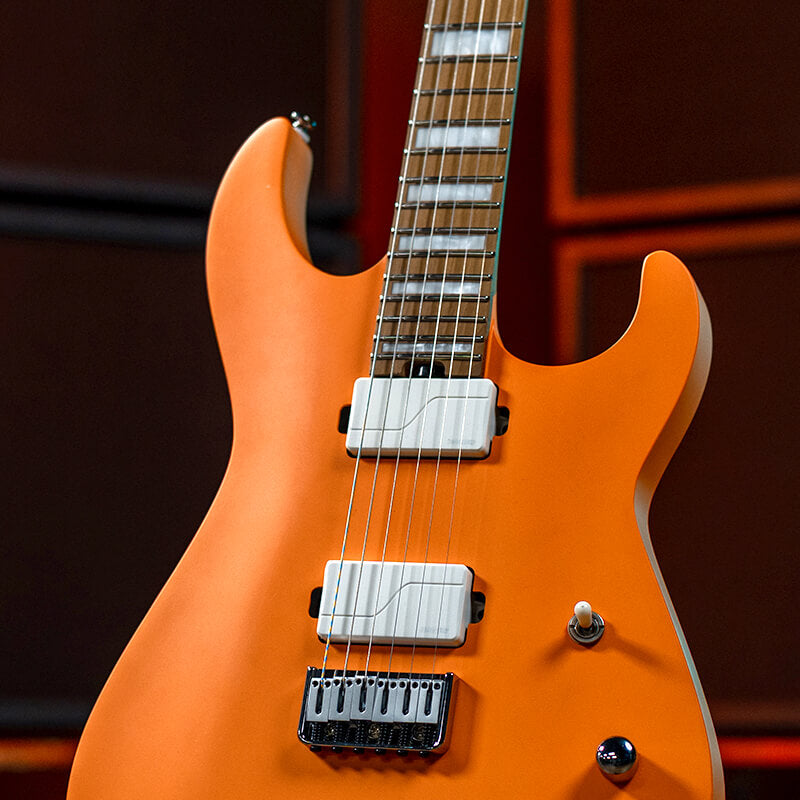
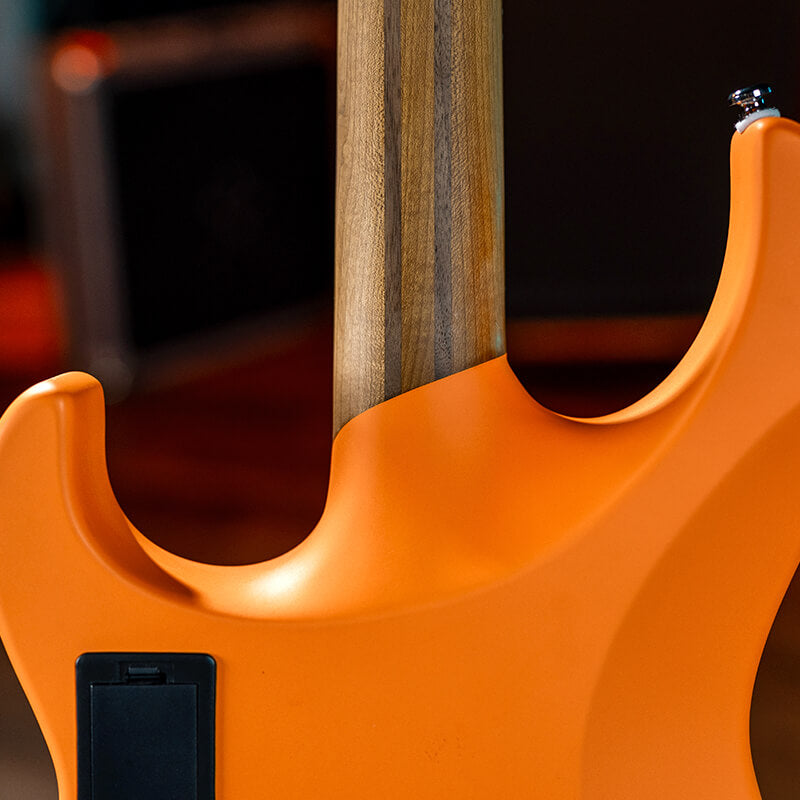
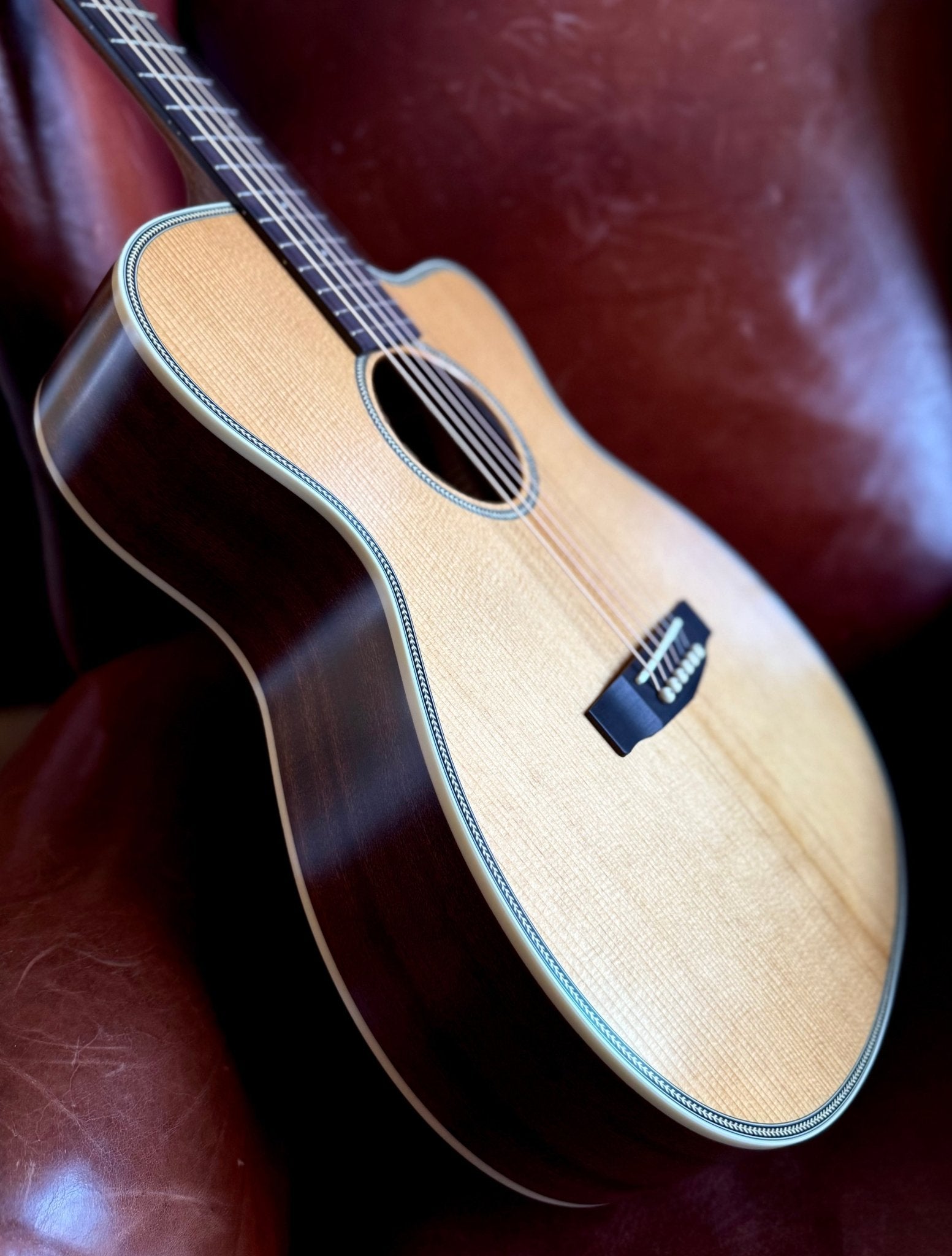
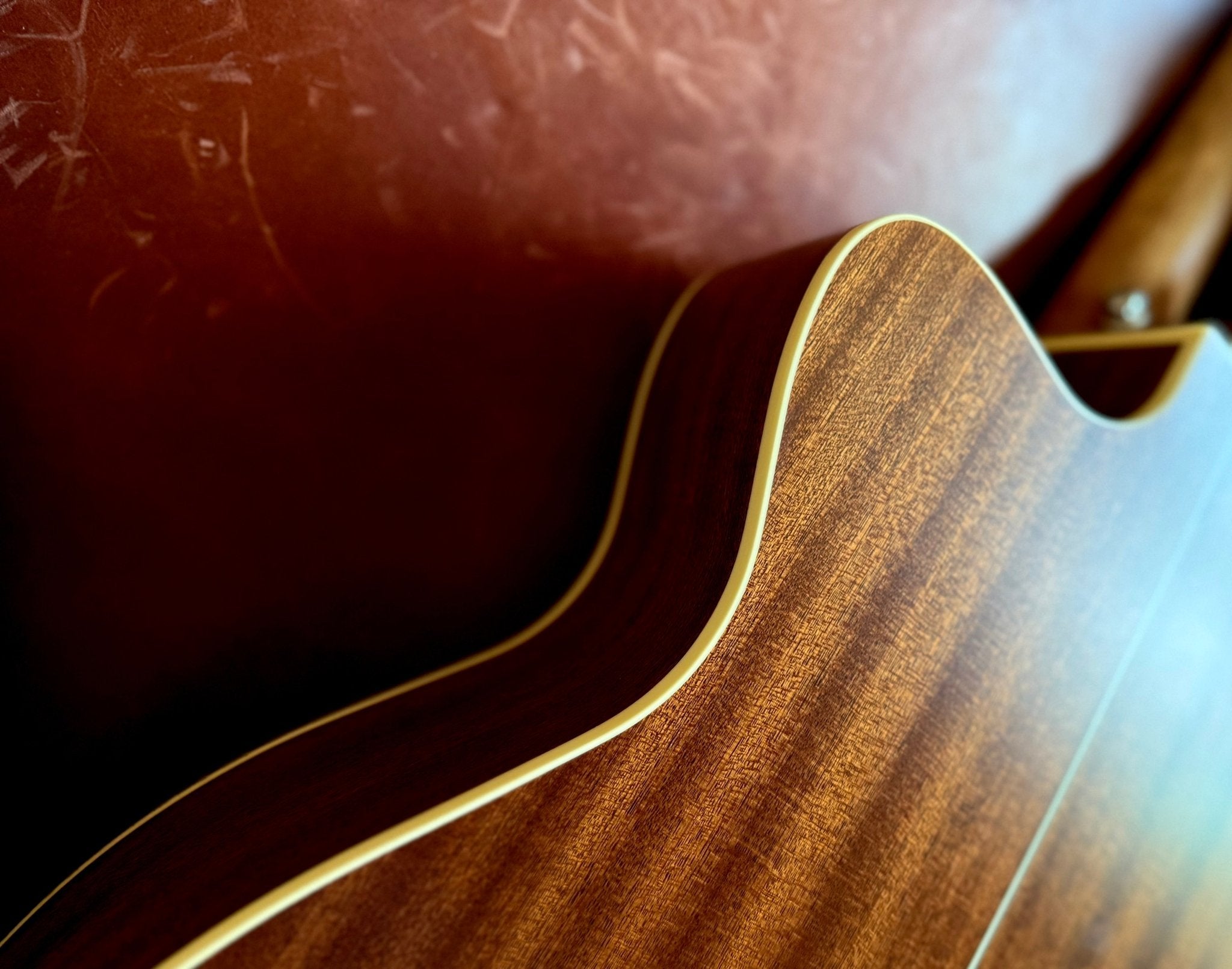
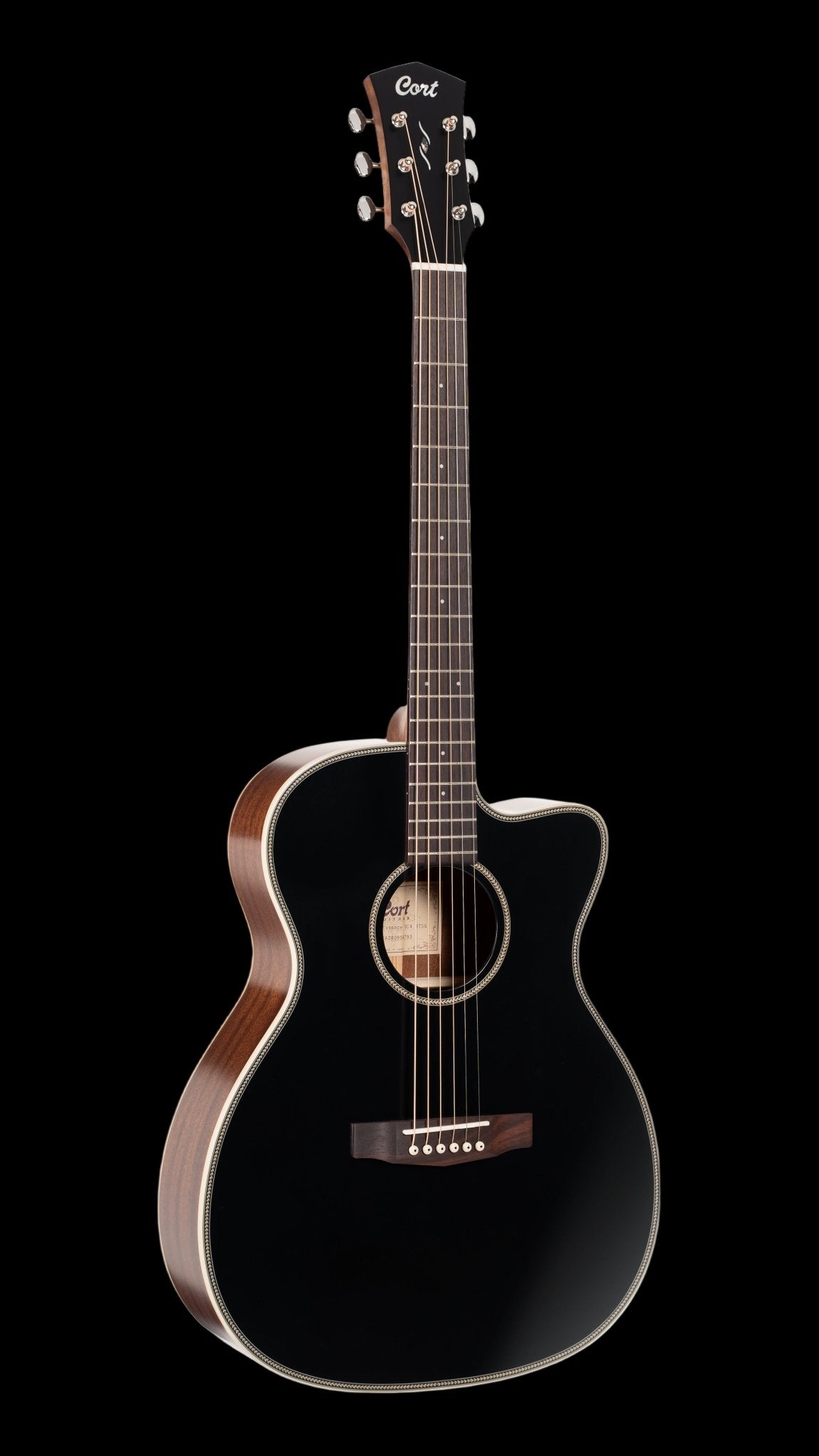
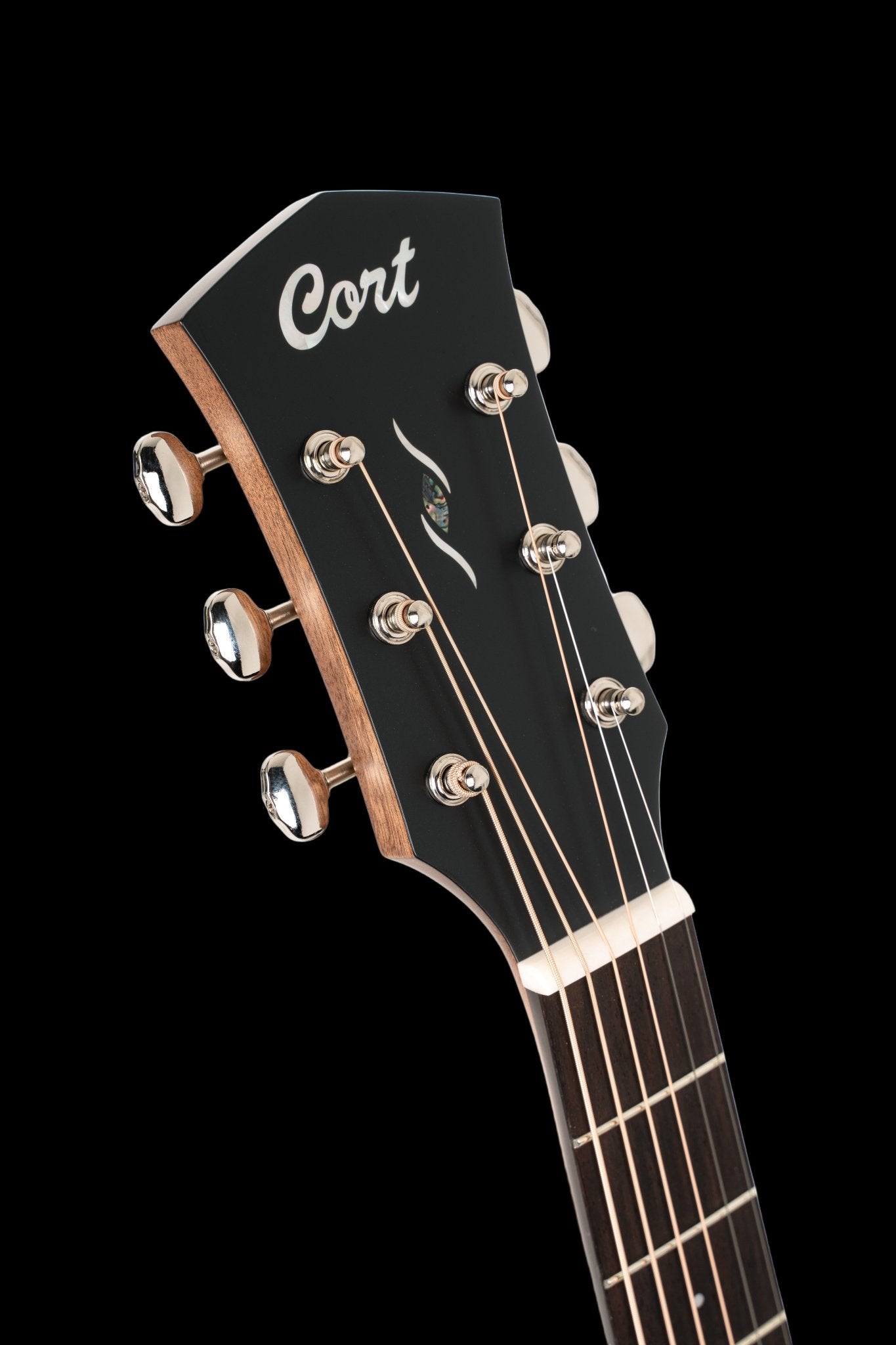
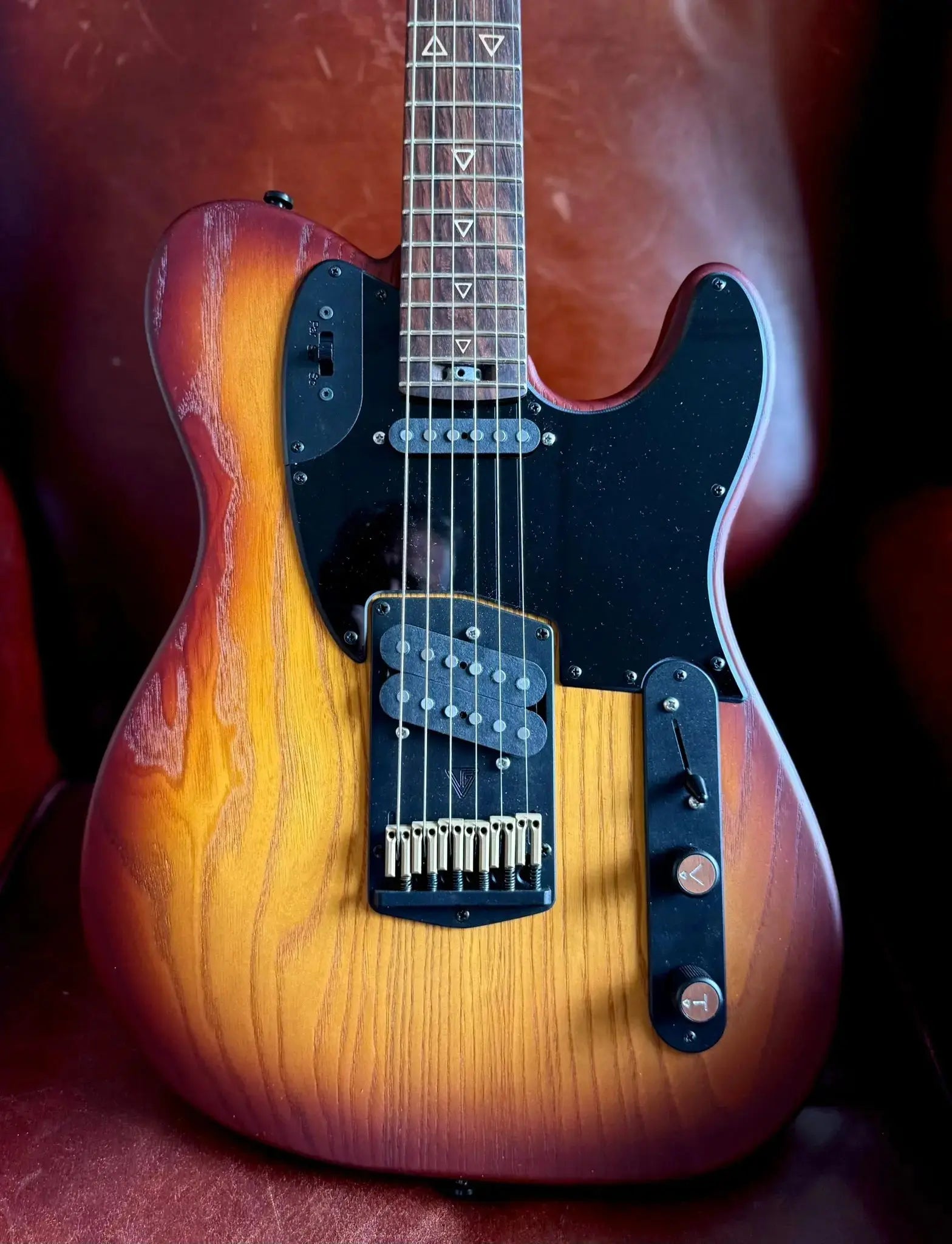
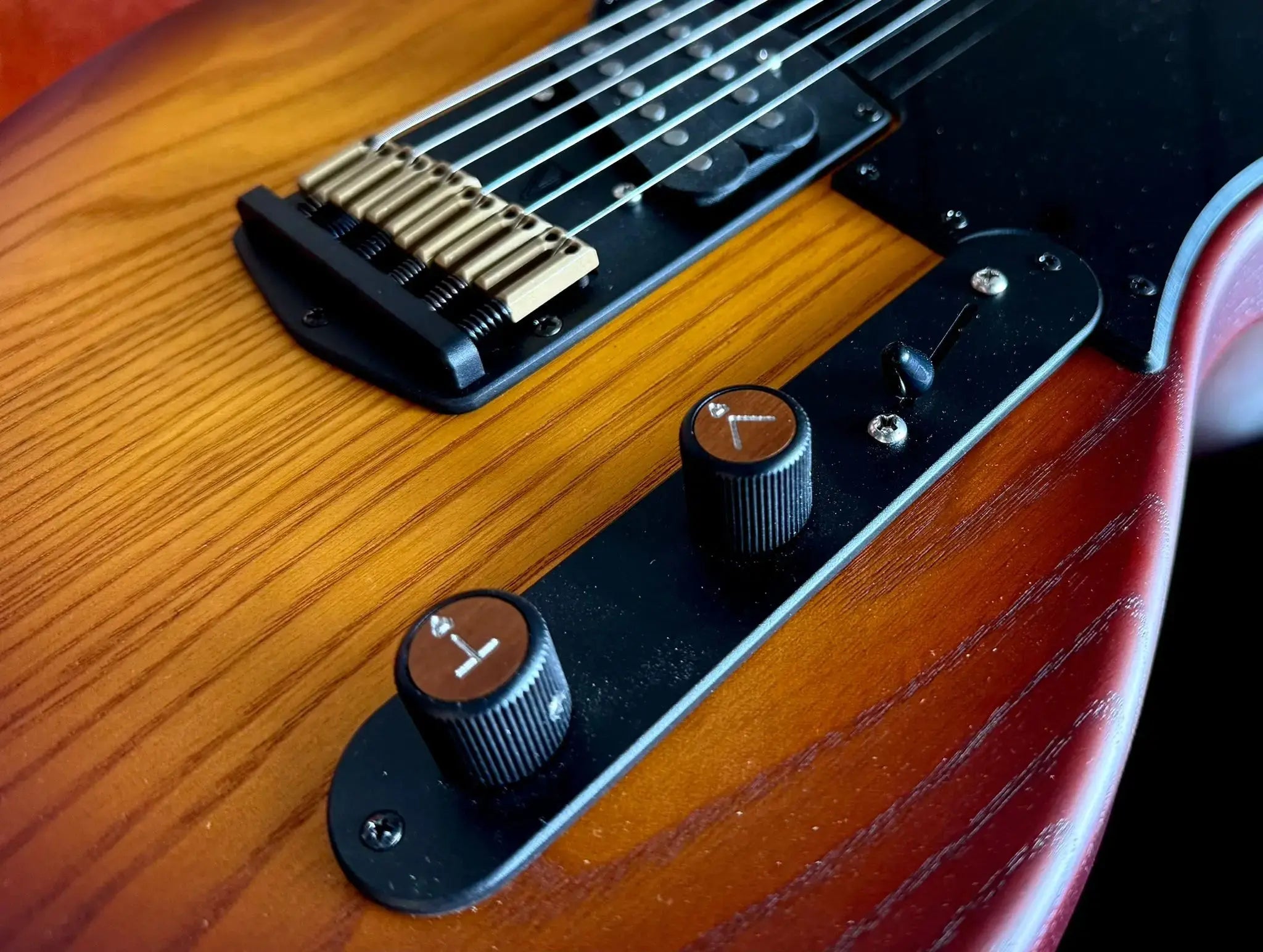
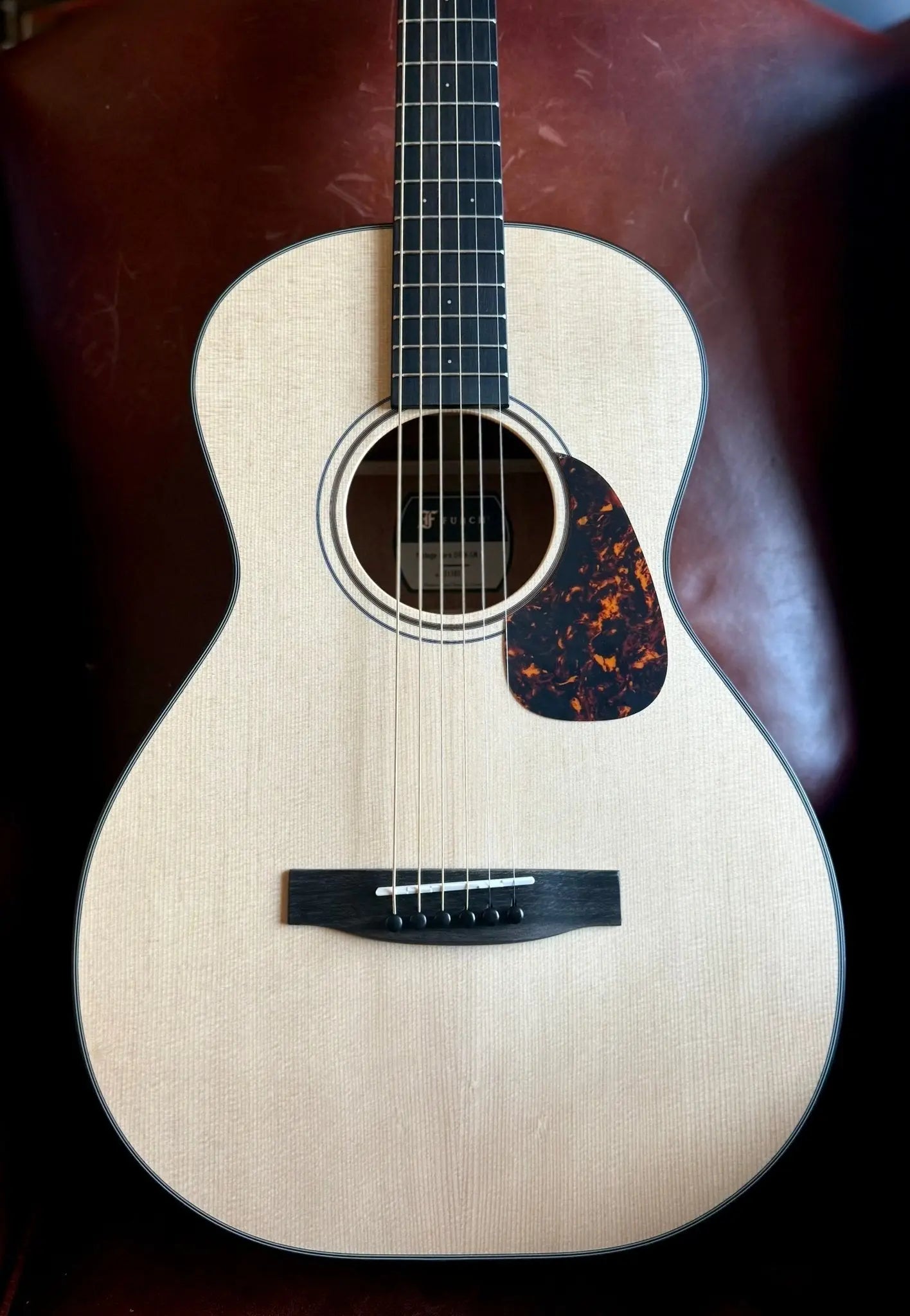
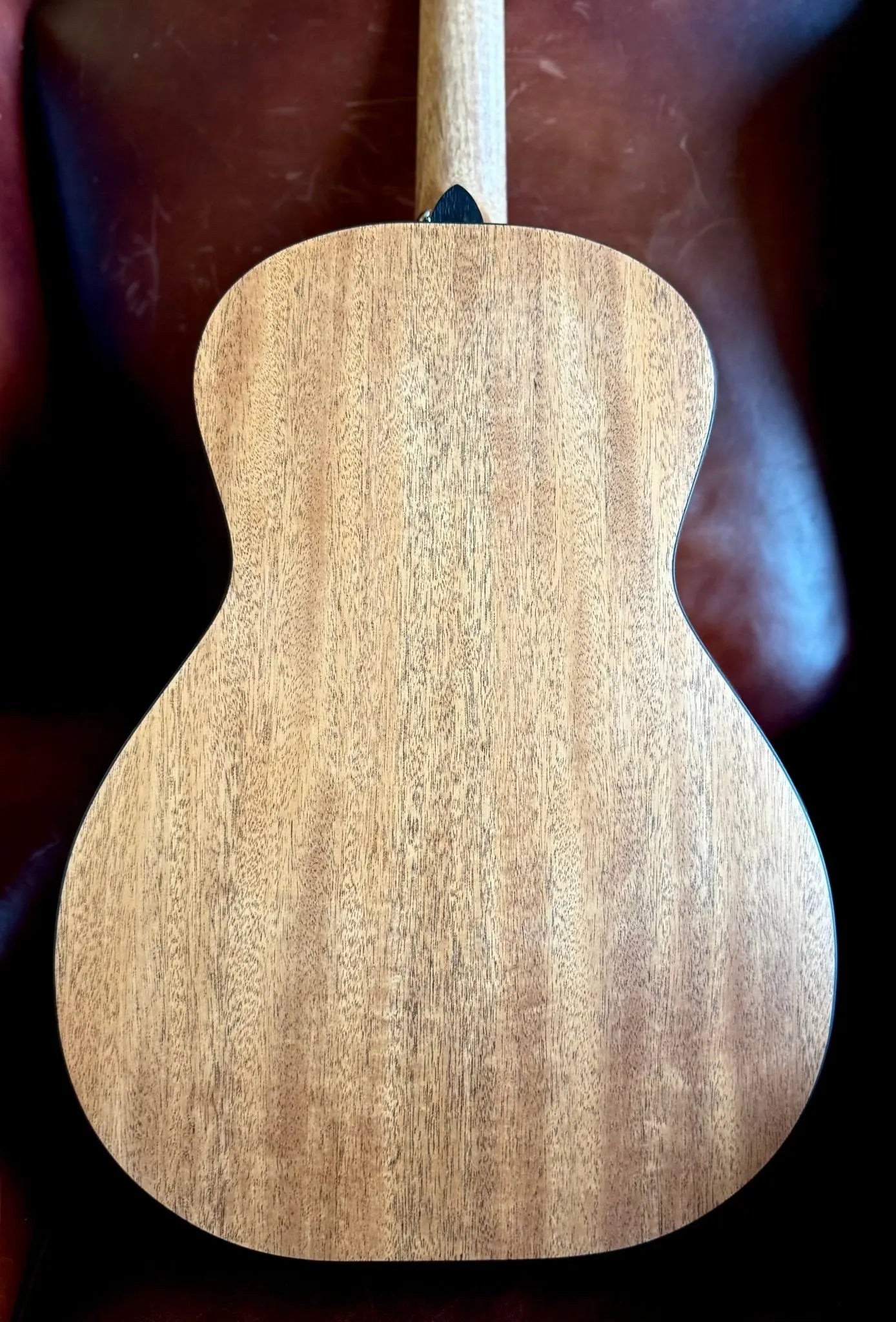
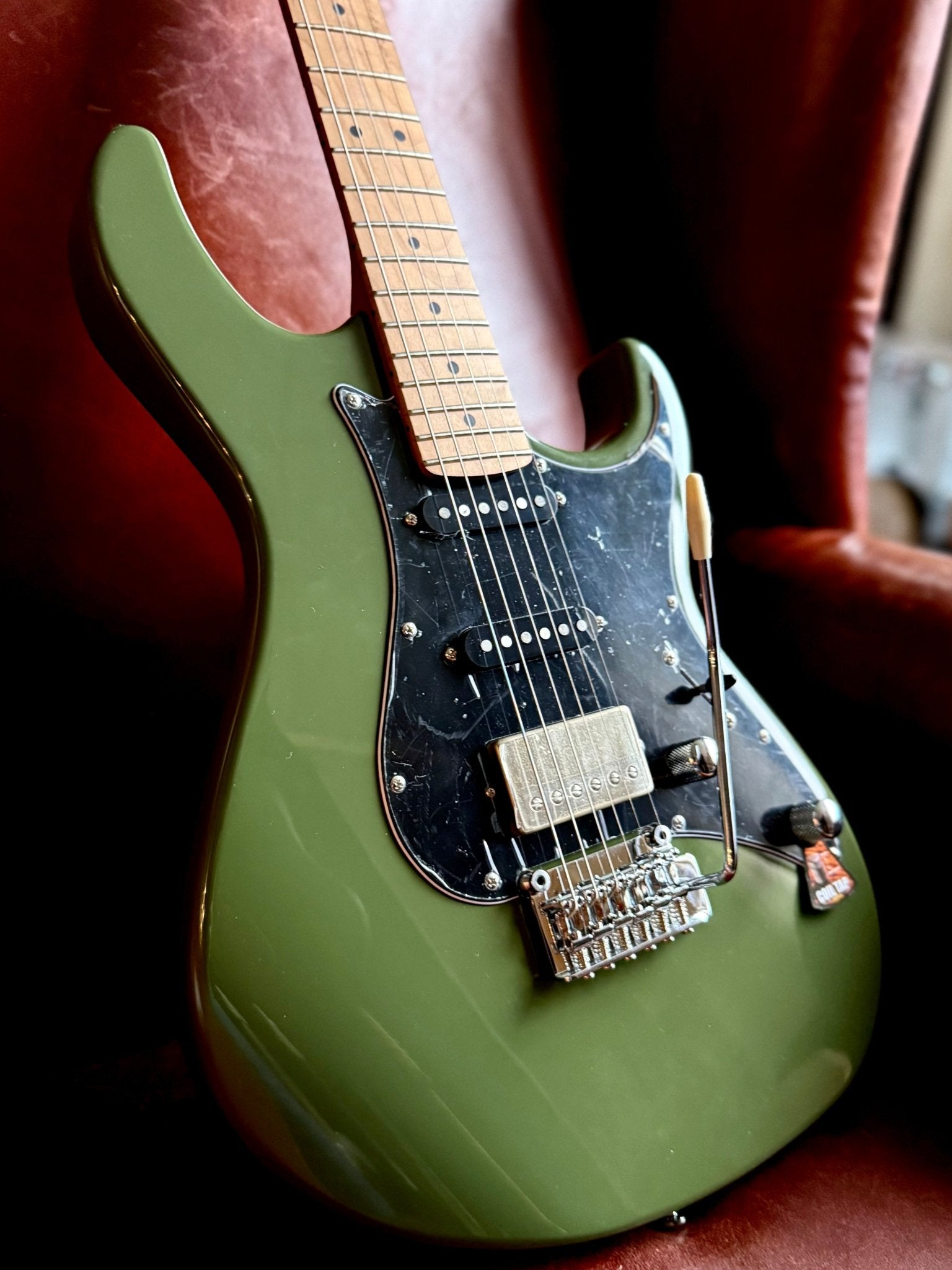
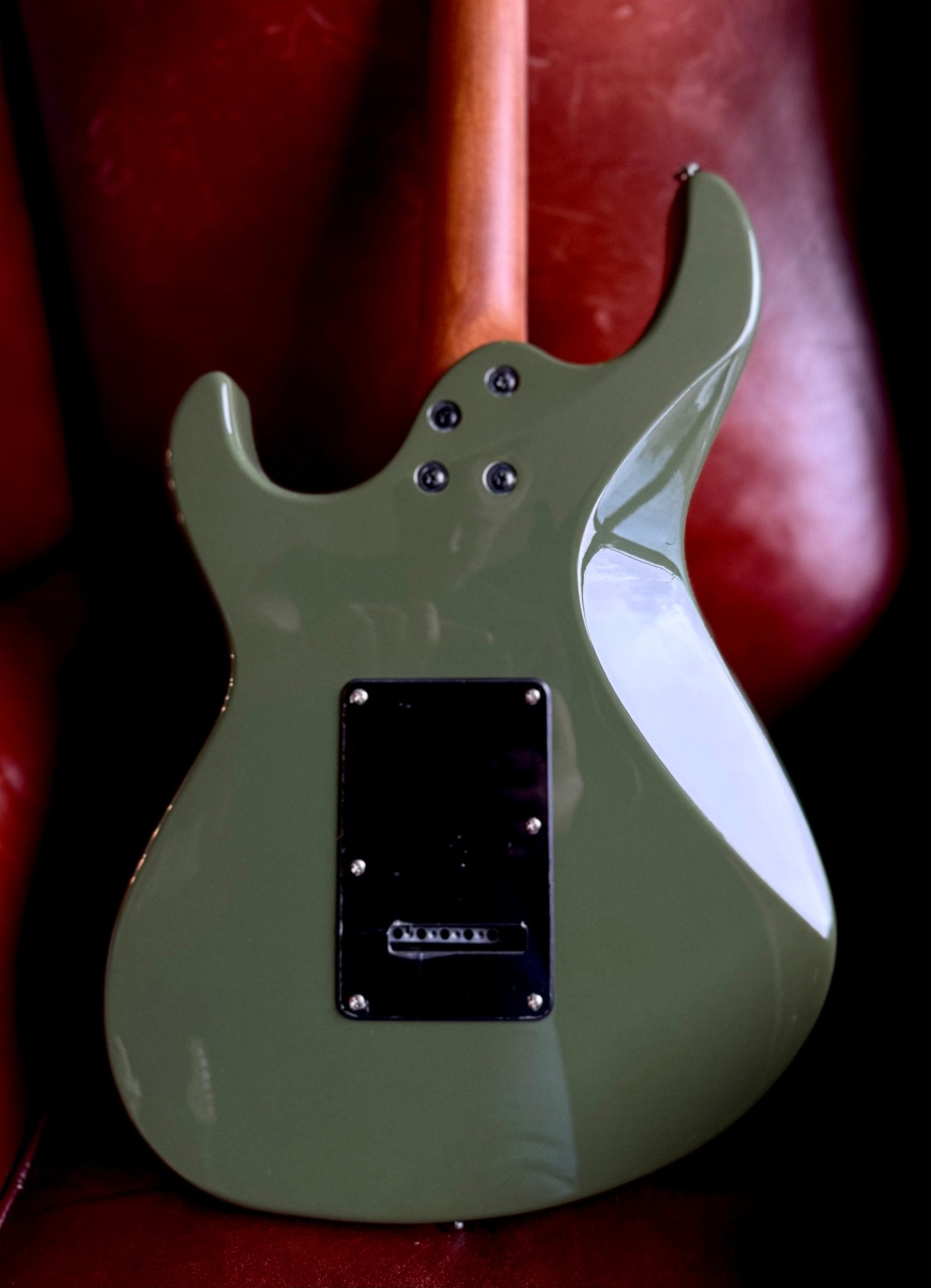
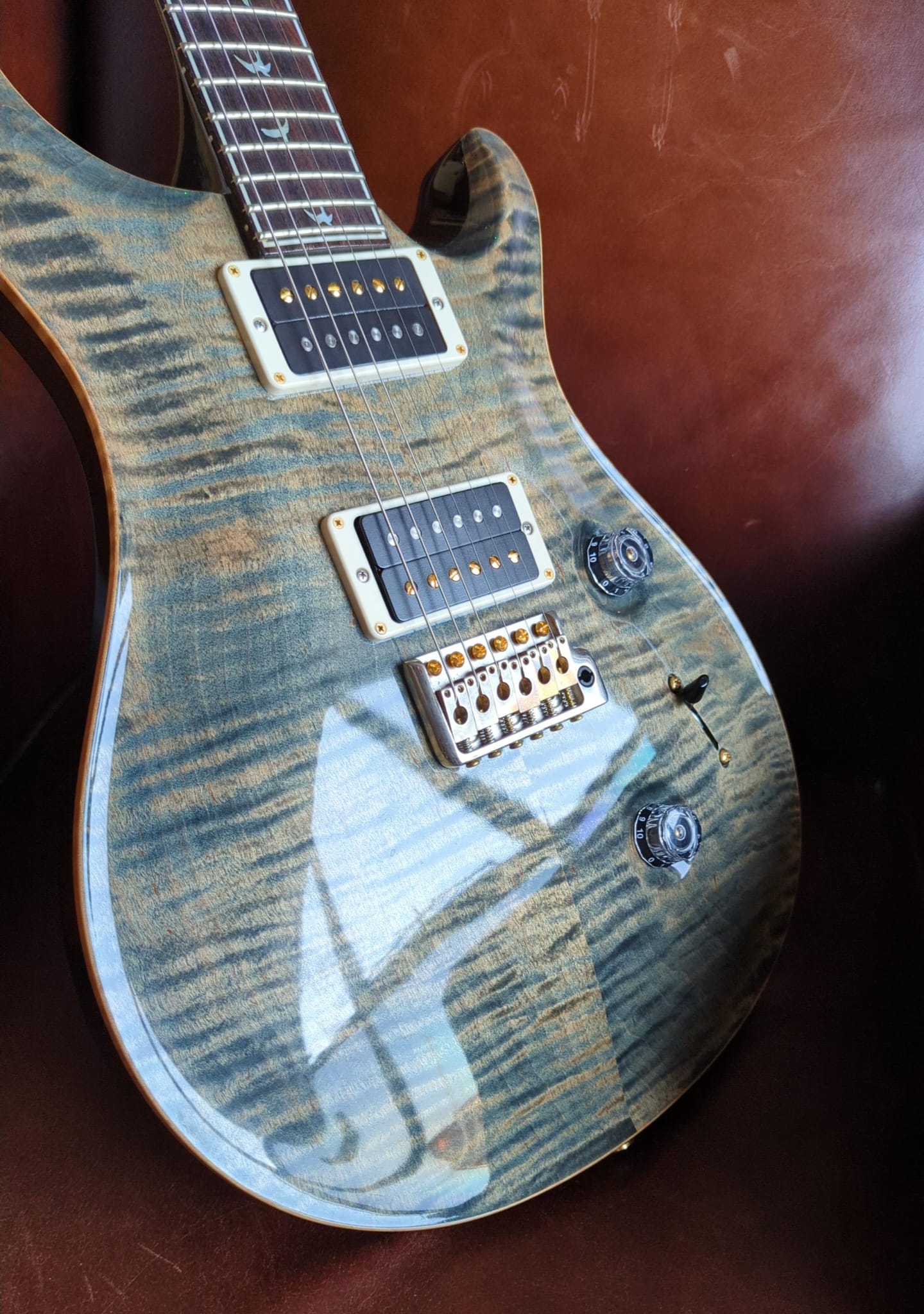
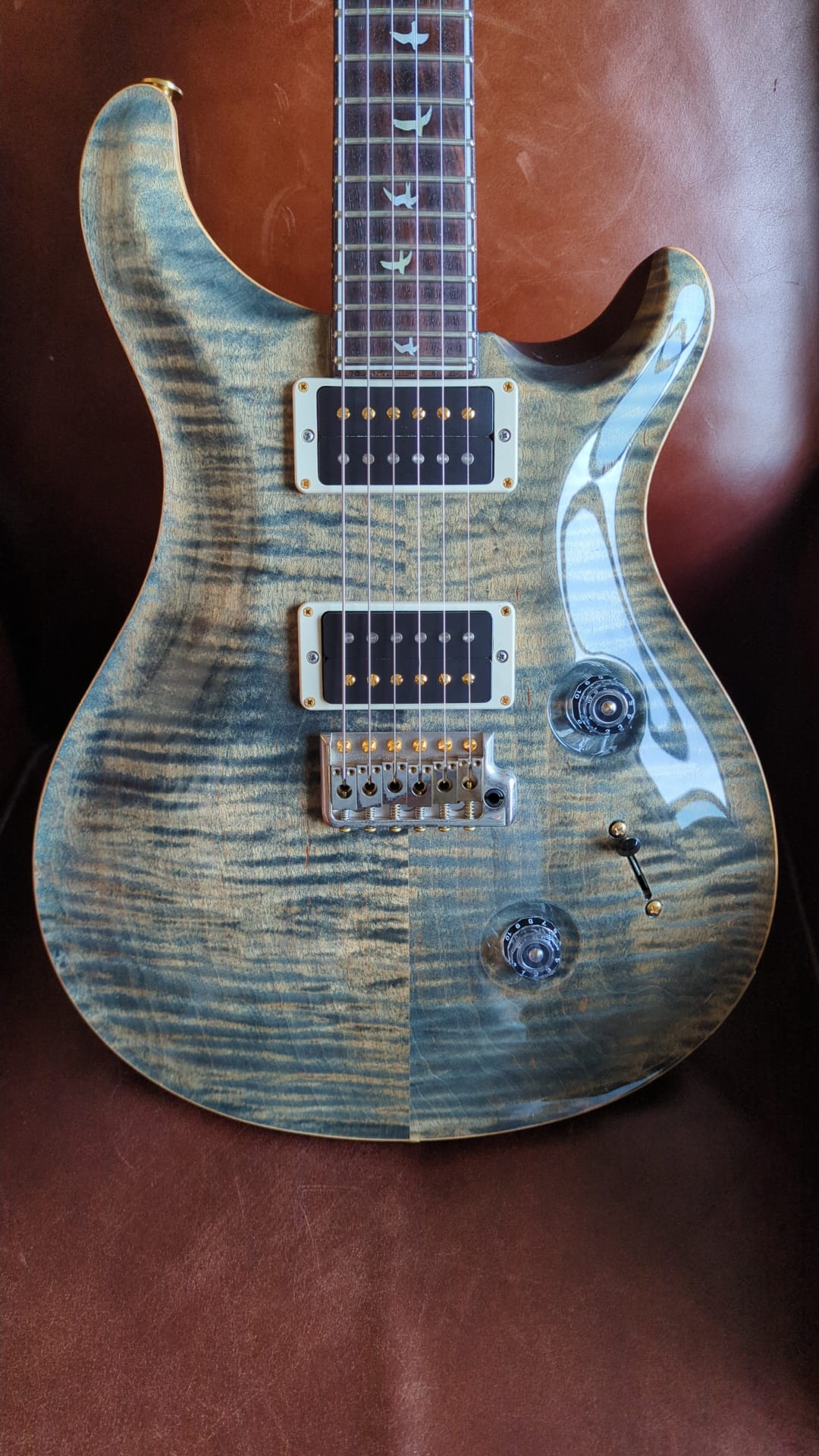
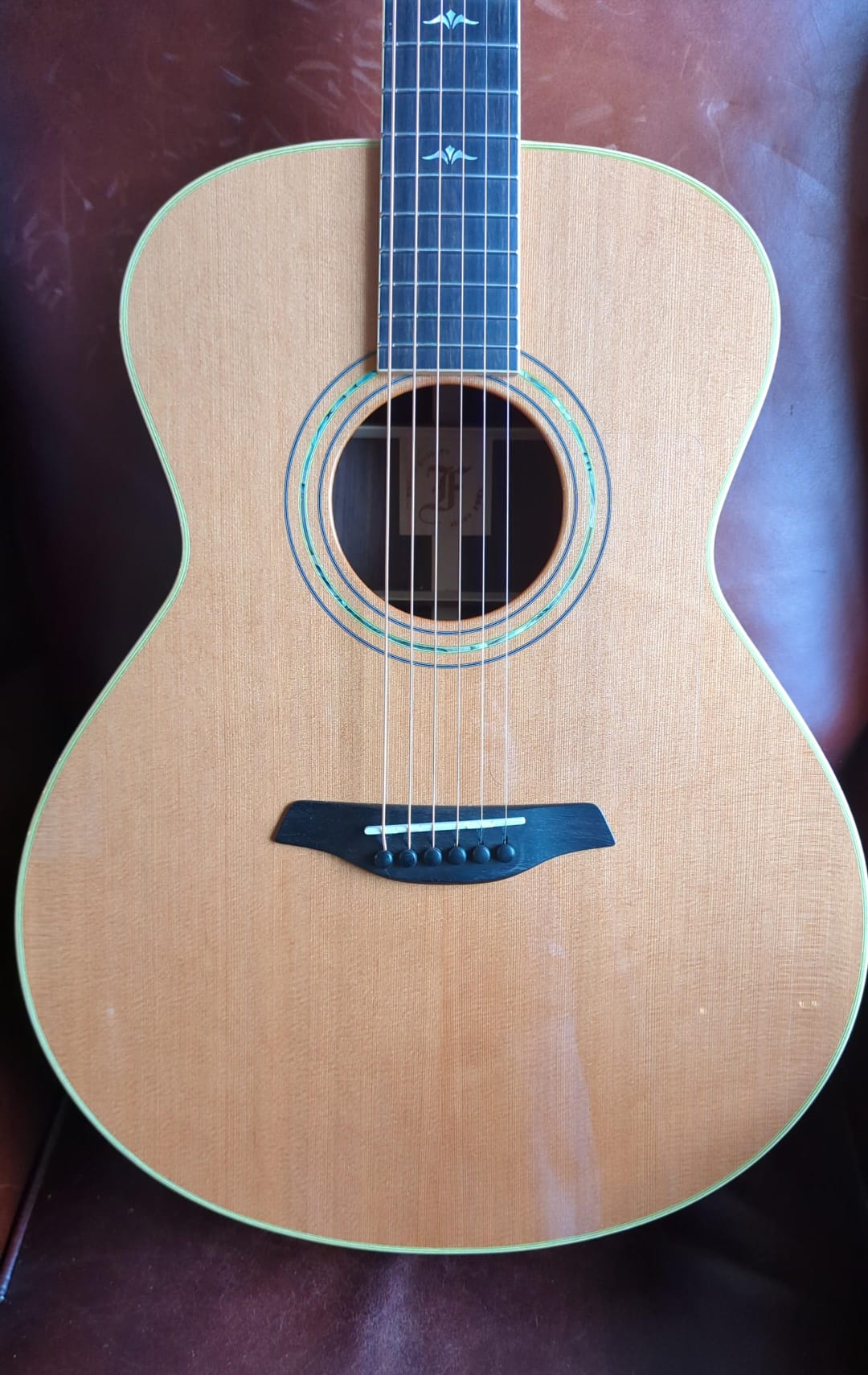
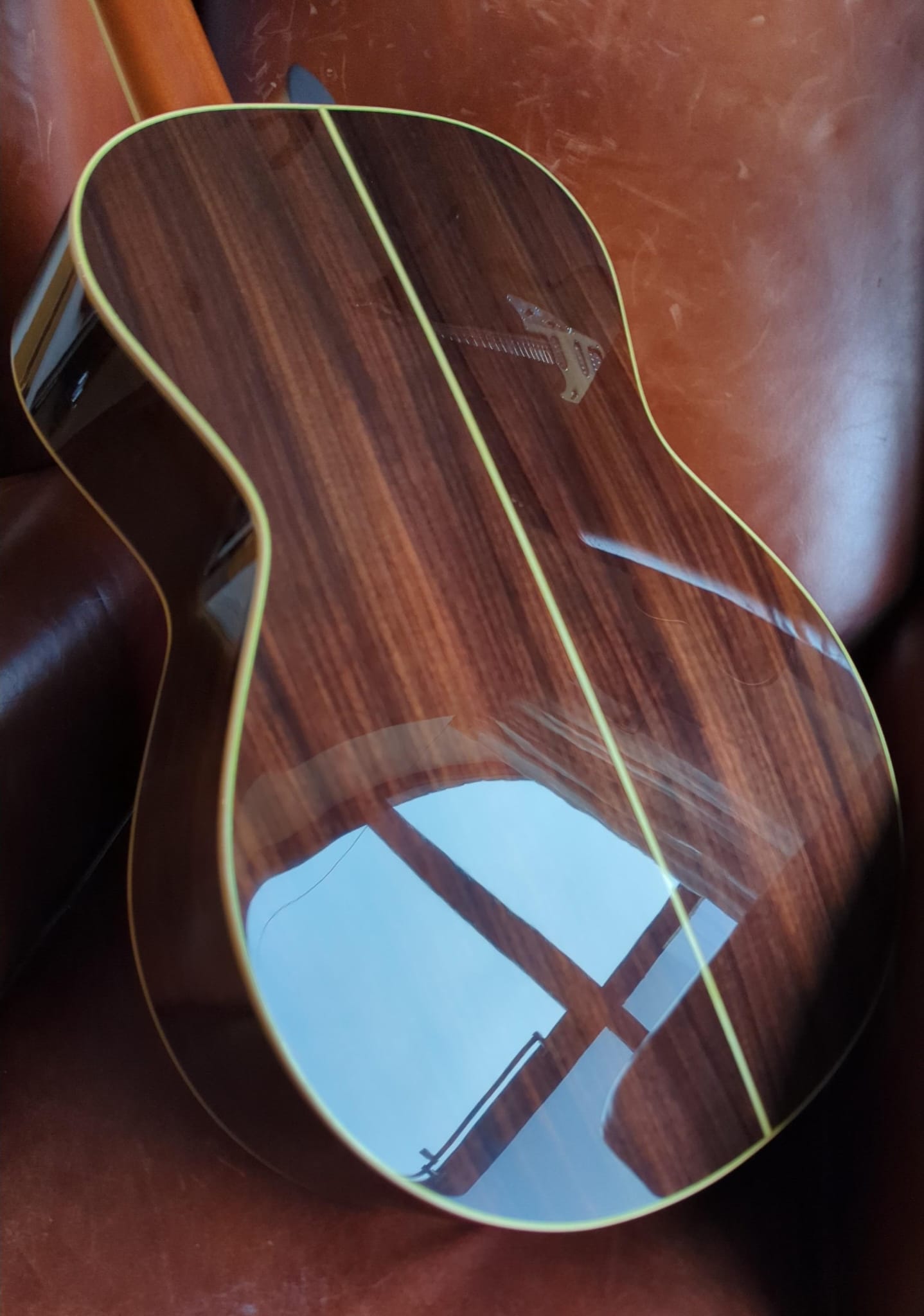
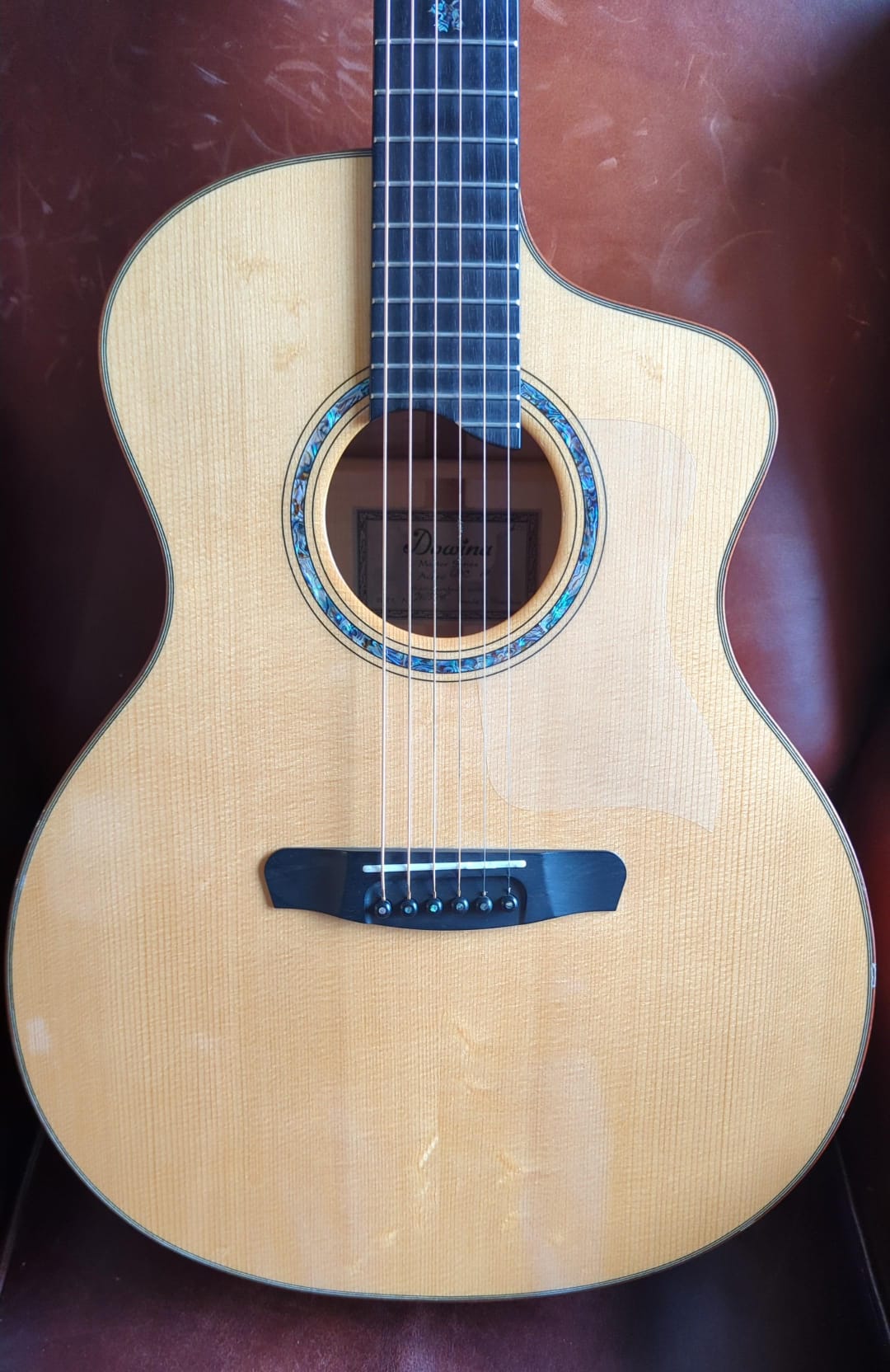
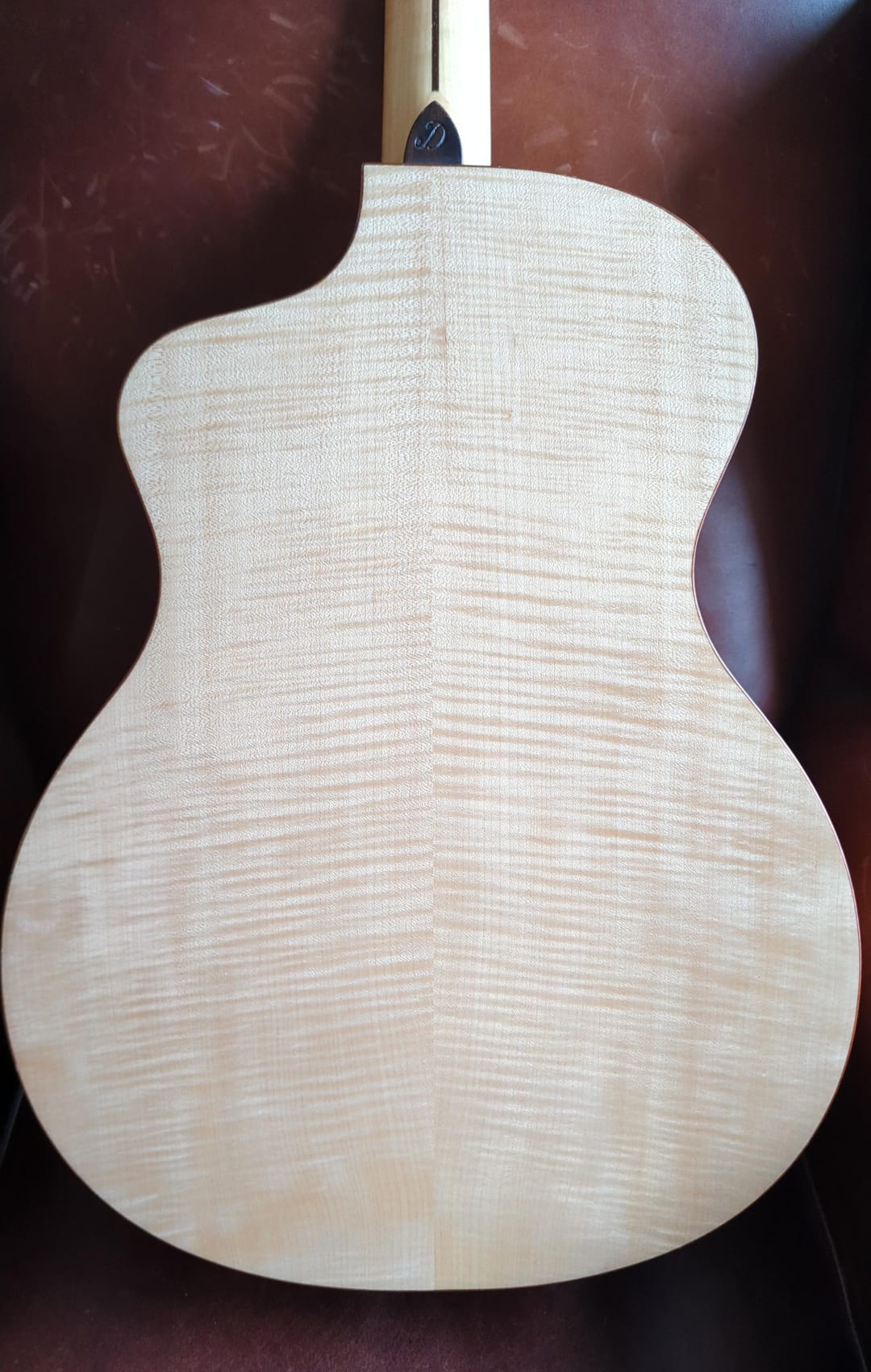
![Gordon Smith GS2 Deluxe Export 2019 [used] A1 Condition - Richards Guitars Of Stratford Upon Avon](http://rguitars.co.uk/cdn/shop/files/gordon-smith-gs2-deluxe-export-2019-used-a1-condition-4323398.jpg?v=1766153718&width=1072)
![Gordon Smith GS2 Deluxe Export 2019 [used] A1 Condition - Richards Guitars Of Stratford Upon Avon](http://rguitars.co.uk/cdn/shop/files/gordon-smith-gs2-deluxe-export-2019-used-a1-condition-9502671.jpg?v=1766153718&width=899)
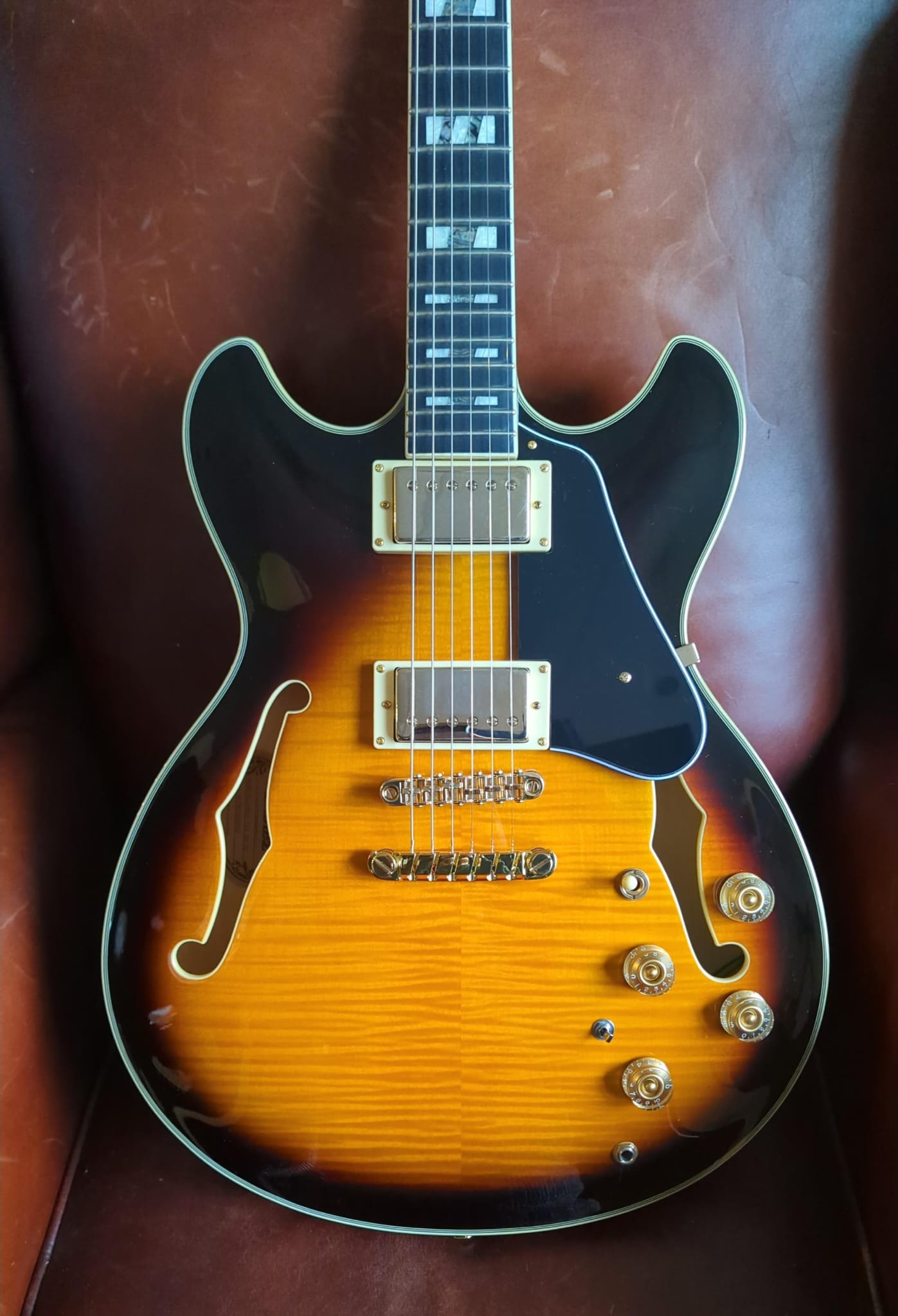
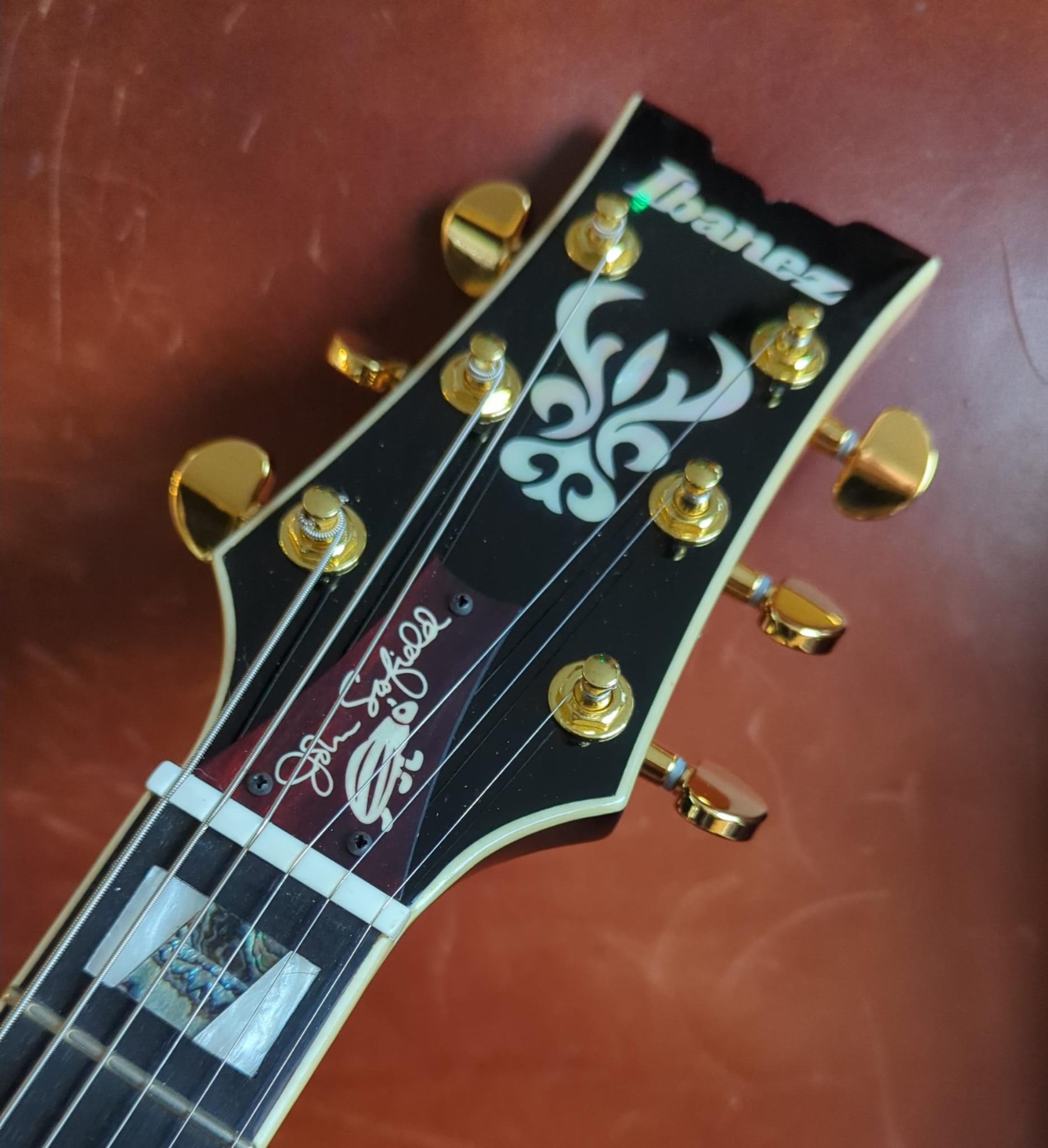
![G&L USA Made ASAT - late 80s/early 90s [Used] - Richards Guitars Of Stratford Upon Avon](http://rguitars.co.uk/cdn/shop/files/gl-usa-made-asat-late-80searly-90s-used-1091932.jpg?v=1761670676&width=1378)
![G&L USA Made ASAT - late 80s/early 90s [Used] - Richards Guitars Of Stratford Upon Avon](http://rguitars.co.uk/cdn/shop/files/gl-usa-made-asat-late-80searly-90s-used-7964817.jpg?v=1761670677&width=1828)
![Eastman AC630 - SB [Used] - Richards Guitars Of Stratford Upon Avon](http://rguitars.co.uk/cdn/shop/files/eastman-ac630-sb-used-5743157.jpg?v=1760421581&width=1080)
![Eastman AC630 - SB [Used] - Richards Guitars Of Stratford Upon Avon](http://rguitars.co.uk/cdn/shop/files/eastman-ac630-sb-used-2967411.jpg?v=1760421593&width=1569)
![Fender American Standard Telecaster 2012 - Natural [Used] guitar for sale uk](http://rguitars.co.uk/cdn/shop/files/fender-american-standard-telecaster-2012-natural-used-4379607.jpg?v=1760421498&width=1614)
![Fender American Standard Telecaster 2012 - Natural [Used] guitar for sale uk](http://rguitars.co.uk/cdn/shop/files/fender-american-standard-telecaster-2012-natural-used-1429240.jpg?v=1760421497&width=1512)
![Fender American Professional II Jazzmaster - Dark Night [Used] guitar for sale uk](http://rguitars.co.uk/cdn/shop/files/fender-american-professional-ii-jazzmaster-dark-night-used-6840250.jpg?v=1760421430&width=1602)
![Fender American Professional II Jazzmaster - Dark Night [Used] guitar for sale uk](http://rguitars.co.uk/cdn/shop/files/fender-american-professional-ii-jazzmaster-dark-night-used-4375294.jpg?v=1760421432&width=1476)
![Guild Brian May "Red Special" Limited Edition - early 90s - One of 1000 [Used] guitar for sale uk](http://rguitars.co.uk/cdn/shop/files/guild-brian-may-red-special-limited-edition-early-90s-one-of-1000-used-6139630.jpg?v=1760421357&width=1492)
![Guild Brian May "Red Special" Limited Edition - early 90s - One of 1000 [Used] guitar for sale uk](http://rguitars.co.uk/cdn/shop/files/guild-brian-may-red-special-limited-edition-early-90s-one-of-1000-used-9797150.jpg?v=1760421365&width=1644)
